Zelda Dungeon’s Best Zelda Ever Ranking List – 2023 Edition!
Posted on December 16 2023 by Rod Lloyd
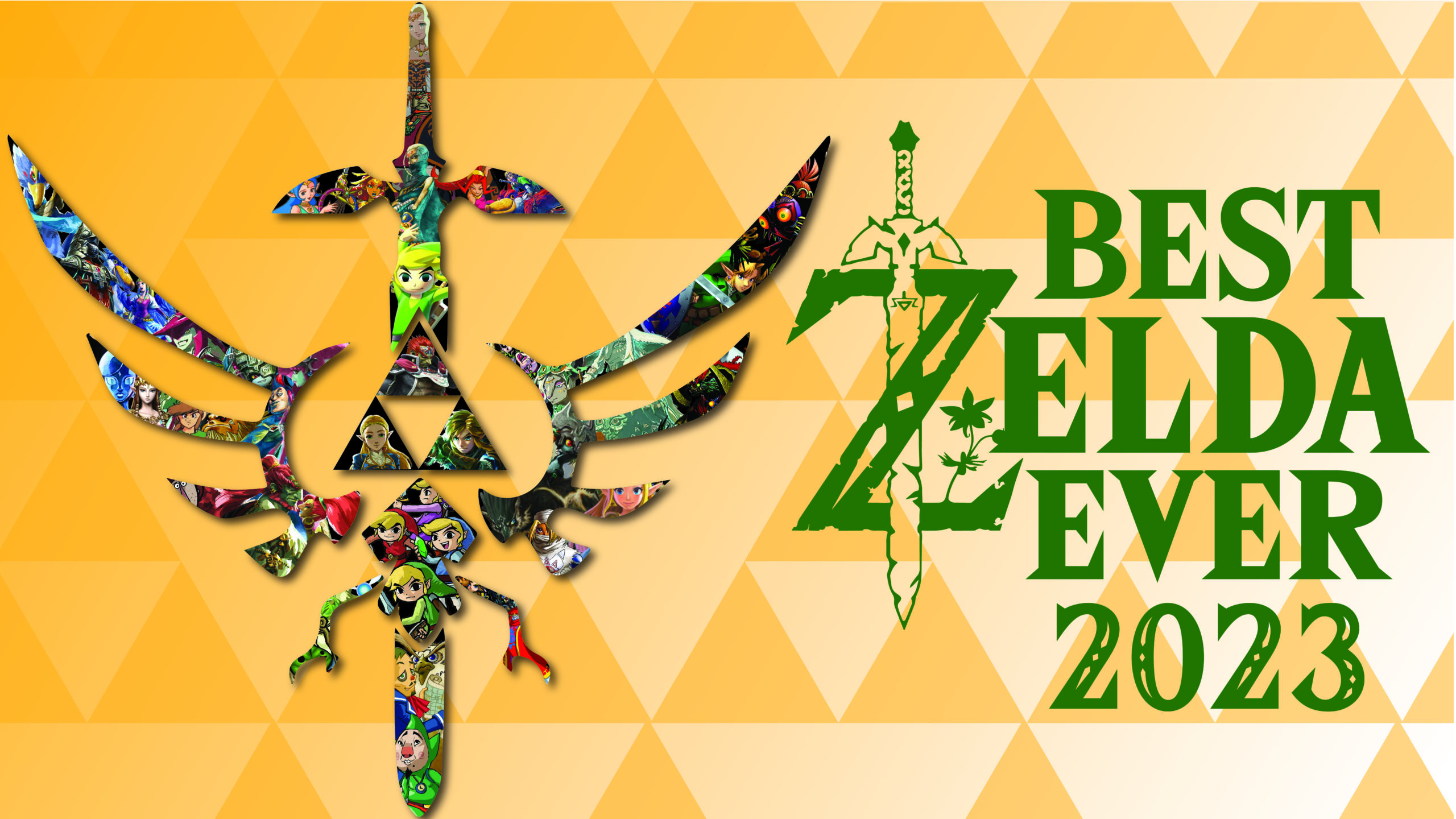
It’s here! It’s finally here! With another calendar year quickly coming to a close, it is time once again for us to present Zelda Dungeon’s proudest tradition: Best Zelda Ever!
At the end of every year, the amazing team here at ZD comes together to rank every single Zelda title from worst to best. The task is never easy, but this year’s ranking proved particularly challenging due to some major shakeups. Not only did we, as we always do, see new faces join the team and veterans move on to greener pastures (this is my first year in the leader’s chair, by the way), a certain new game known as The Legend of Zelda: Tears of the Kingdom dropped in May to critical acclaim and strong fan enthusiasm.
A brand-new Zelda game typically needs a year or two to fully settle into a spot in the ranking — we all need time to really meditate on a game’s quality and impact — so a debut on the list is always interesting, as hype and first impressions take priority over more measured evaluations. Honestly, some of the biggest question marks this year for us have revolved around Tears of the Kingdom‘s ultimate placement on this list. Where would it land? Would it shake up the placement of the overall ranking? How would it affect the placement of its predecessor Breath of the Wild?
Before we get to answering those questions, please allow me to discuss the details and methodology of this ranking.
We have ranked all 20 mainline Zelda titles, as well as three high-profile spinoffs: Hyrule Warriors, Hyrule Warriors: Age of Calamity, and Cadence of Hyrule. If a particular game has been re-released, remastered, or remade completely, we asked our staffers to consider all releases of that game collectively, to the best of their ability. Link’s Awakening, Link’s Awakening DX, and Link’s Awakening (2019) were considered together, for example.
A total of 30 Zelda Dungeon staff members contributed to this list, including our entire writing team, members of our management team, and members of our YouTube crew. Each staff member submitted their own personal ranking of Zelda games, from worst to best, and all submitted rankings were then consolidated into this master list. As always, crafting a list of this size with so many different types of games is an intense challenge. Every person considers different aspects when assessing a game’s quality, from its gameplay, to its story, to its historical significance. We left it up to our staff members to decide how they weigh certain aspects of each game over others when determining their individual rankings.
As we’ve done the past few years, we developed a points system in order to consolidate all of our individual lists into a single master list. This points system is meant to accommodate staff members who haven’t played every Zelda game out there while rewarding members who have played more Zelda games than others. Here’s how it works: each staff member’s least favorite Zelda is awarded only one point, and every subsequent game received points based on its number of spots from the bottom of the ranking. So, if a game is ten spots from the bottom, it received ten points. If a staffer had only played ten Zelda games, their favorite could only rack up ten total points; but if a staffer had played every Zelda game, their favorite got 23 total points. This way, staff members who have played every Zelda game have greater voting share than those who have only played a few. In the end, we tallied the total points each game earned and ranked all games according to total points.
But that’s enough blabbering from me! Below, you’ll find the thoughts, opinions, critiques, and insights of our incredibly talented writing staff. We’re very proud to once again deliver Best Zelda Ever to everyone! Let’s get down to it!
Best Zelda Ever 2018 | Best Zelda Ever 2019 | Best Zelda Ever 2020 | Best Zelda Ever 2021 | Best Zelda Ever 2022
23. Four Swords
Highest Rank: 13 | Lowest Rank: 23 | Last Year’s Rank: 21 | Avg Points per Author Played: 3.333
9/30 staffers had not completed the game and did not rank it.
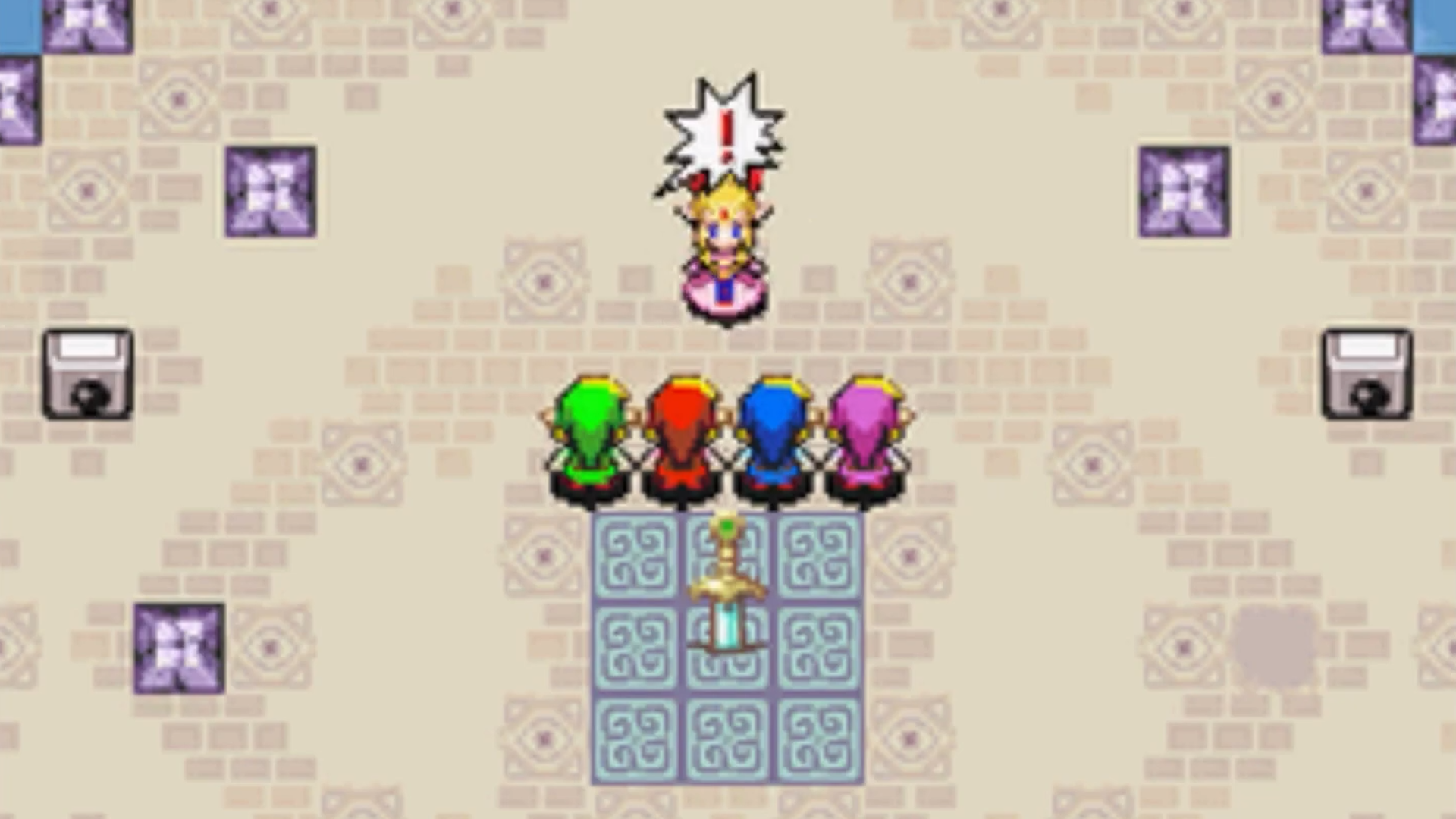
We kick off our ranking with The Legend of Zelda‘s first multiplayer offering. After narrowly avoiding a terrible fate last year, Four Swords finds itself once again at the bottom of the list.
Four Swords seems forever doomed by its limited availability. As Kristen Rosario puts it, “The most obvious drawback with this title is that, with Nintendo shutting down the eShop for their handhelds, ways of playing it officially are extremely limited.” If fans want to try Four Swords for themselves, they either need to track down the original Game Boy Advance cartridge, seek out someone who downloaded the Anniversary Edition before it was pulled, or pray that Nintendo brings it to the Switch.
But what about the game itself? Kristen argues that this game is not without its charms. “Four Swords is the easiest Zelda game to just pick up and play. Simply get a few friends together, choose your color, and go on a fun adventure regardless of skill level. The enjoyment doesn’t even come from simply completing the adventure, but from the journey in getting there. The reckless abandon experienced with your like-minded Link buddies is the game’s biggest charm.”
Alexis Anderson, a stern defender of sequel Four Swords Adventures, found particular fault in this title’s solo play. “My gripe with the game is that it was difficult to play solo,” she explains. “Granted, it wasn’t meant to be played alone, but Four Swords Adventures was enjoyable whether you were playing with buddies or not. Four Swords just did not figure out how to build the game so that the single player experience was close to as fun and functional as the multiplayer (it was clunky to play alone).” It’s interesting to note that a single-player mode wasn’t even introduced to Four Swords until the Anniversary Edition release in 2011.
“Say what you will about Tri Force Heroes,” Alexis concludes, “but at least it has a big personality. Four Swords was just lackluster to me.”
22. Tri Force Heroes
Highest Rank: 17 | Lowest Rank: 23 | Last Year’s Rank: 22 | Avg Points per Author Played: 4.4
10/30 staffers had not completed the game and did not rank it.

Speaking of Tri Force Heroes, the Zelda series’ latest multiplayer title jumps ahead of Four Swords this year. It’s not great, but it is an improvement.
Sean Gadus goes straight for the throat in his assessment. “Tri Force Heroes is a victim of two crucial decisions by Nintendo. First, Nintendo made the decision to try to make Tri Force Heroes playable for solo players. This decision was a complete disaster, one that is in complete conflict with the best way to play the game. The second mistake was to release Tri Force Heroes at a time period when fans were starving for the next great Zelda game.”
Echoing Sean’s thoughts on the game’s single-player, Charles Xavier says, “What majorly drags this game down is the option to play it single player. This game was not designed to be played alone, and it is borderline unplayable this way. If it were not for the fairy skipping feature, I don’t think a majority of players doing solo playthroughs would be able to do some of the levels or complete some of the boss battles.”
Both editors had a few positives to share though. Charles acknowledges that the game “has a unique soundtrack, the Kingdom of Hytopia is an interesting concept, and, most importantly, the multiplayer for the game is an enjoyable experience.” Sean meanwhile concedes that “if you have two comrades to play Tri Force Heroes with, this wacky game can provide a significant amount of joy and laughs.”
The future seems grim for Tri Force Heroes, unfortunately. As Charles points out, “With the Nintendo 3DS servers soon to shut down, and with it the removal of online multiplayer for Tri Force Heroes, it may soon become the worst Zelda game to own.”
21. The Adventure of Link
Highest Rank: 7 | Lowest Rank: 23 | Last Year’s Rank: 20 | Avg Points per Author Played: 5.529
3/30 staffers had not completed the game and did not rank it.
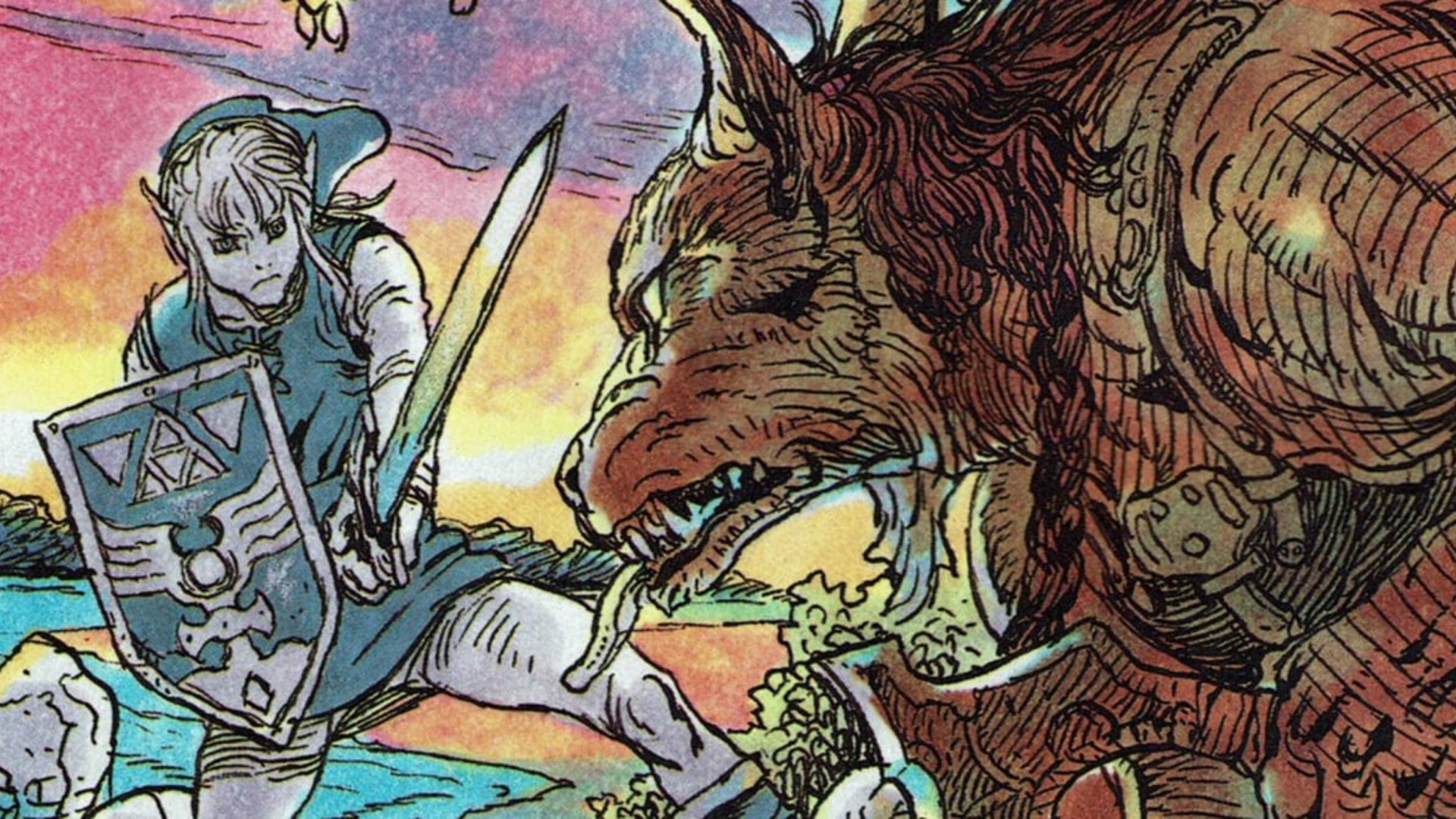
Ignoring most of what its beloved predecessor established and providing a completely new experience, the “black sheep” of the Zelda series, it seems, has always been controversial.
John Furby confesses to have despised Zelda II: The Adventure when it first released. “I didn’t understand the perspective shift, and I hadn’t played any RPGs at that point to comprehend even the very basic leveling system. I avoided the random enemy encounters as best I could, which left me wildly under-leveled for even the early dungeons. It frustrated me, and I put it away for a long time.”
This perspective has been shared with generations of Zelda fans interested in exploring the series’ roots. As Alex Weber puts it, “The Adventure of Link is arguably unapproachable for the first-time player, and I pity the kids who grew up with it. They must have a kind of patience that is beyond me. You not only feel the weight of your mistakes, but are overwhelmed by how it presses them upon you. The linearity makes you feel trapped in a torture chamber of dying and restarting. Perhaps if I were a more patient woman, I could give it the time that its title demands it deserves, but I can never get more than twenty minutes in without remembering with relief that this is self-inflicted and that I can turn off the console.” Savage.
Rod Lloyd meanwhile tries to provide perspective on Zelda II‘s eccentricities: “Within the context of late 80s action games, Zelda II: The Adventure of Link isn’t uniquely difficult or abstruse. It’s difficult in the same ways Ninja Gaiden is difficult and it’s abstruse in the same ways Castlevania II: Simon’s Quest is abstruse. But there lies the problem, especially to younger Zelda fans: The Adventure of Link too closely resembles the games of its era and therefore lacks the common elements that now define the Zelda series as a whole. Because it didn’t transcend the gaming landscape that bore it like other Zelda classics have, this title might forever be fated to the lower half of this ranking.”
Ignoring its crushing difficulty, however, The Adventure of Link is a game of significant firsts for the Zelda series. As John explains, “It began the tradition of Link running errands for people out of the goodness of his heart, and maybe for a little information. It was our first glimpse of Dark Link. It expanded the Triforce lore, and, if you read the instruction manual, you get an introduction to the larger story behind the Legend of Zelda series and its timelines. Part of me would love to see what they could do with a remake, but maybe this game should stay the perfect, little problem child, beloved by those who love it for exactly what it is.” Is that legacy enough to elevate the game any higher in our ranking? For this year at least, it seems not.
Rod caps things off with this: “The Adventure of Link may not be a great Zelda game, but it’s still a great game if you’re willing to approach it on its own terms.”
20. Cadence of Hyrule
Highest Rank: 10 | Lowest Rank: 21 | Last Year’s Rank: 18 | Avg Points per Author Played: 6.217
7/30 staffers had not completed the game and did not rank it.

We come now to our first Zelda spin-off of the list, as rhythm roguelike Cadence of Hyrule: Crypt of the NecroDancer Featuring The Legend of Zelda continues its steady decline from its 2021 peak.
The funny thing about Cadence of Hyrule‘s fall is that no one seems to want to say anything bad about it. Michaela El-Ters, for example, calls it a “charming and delightful entry in the Zelda franchise. Nowhere near as polarizing as other entries such as Tri Force Heroes, Cadence of Hyrule perfectly blends action and rhythm game elements, and keeps it accessible, too. It reminds me of the fun types of crossovers we used to see, such as Super Mario RPG. Cadence of Hyrule is fully aware of its status as a rhythm game and leans into it. You can expect to hear excellent remixes of classic Zelda melodies throughout.”
Even Leslie Jacobson, who ranked Cadence of Hyrule at the bottom of her list, was complimentary. “Cadence of Hyrule is a fun spin-off game that proves the Zelda series can branch out and embrace other styles of gameplay and do it well… We are blessed with so few titles in the series that allow you to play as Zelda herself, and her abilities make sense for her character. The developers took what could have been a Zelda skin on their own game and turned it into a unique, charming addition to the Zelda series.” The charm of Cadence can’t be denied, I suppose.
Both editors, however lightly, were able to identify some negatives though. Michaela recognizes that “the story isn’t anything to write home about, but the ability to select between four playable characters (Cadence, Link, Zelda, and Yves) makes it worth it.” Leslie meanwhile admits that, “for someone who is rhythmically challenged, the game has a bit of a learning curve. The familiar but remixed music certainly helps, along with a lot of visual cues that can help the player get used to the unique movement and combat. There are even options to turn off the rhythm-style combat; but since that’s the point of the game, why do it?”
Cadence of Hyrule‘s low placement, I think, simply comes down to its status as a spin-off title. It’s a game that’s easy to love, but it can never supplant the true-blue Zelda games out there in the eyes of fans.
19. Hyrule Warriors
Highest Rank: 3 | Lowest Rank: 23 | Last Year’s Rank: 19 | Avg Points per Author Played: 5.37
3/30 staffers had not completed the game and did not rank it.
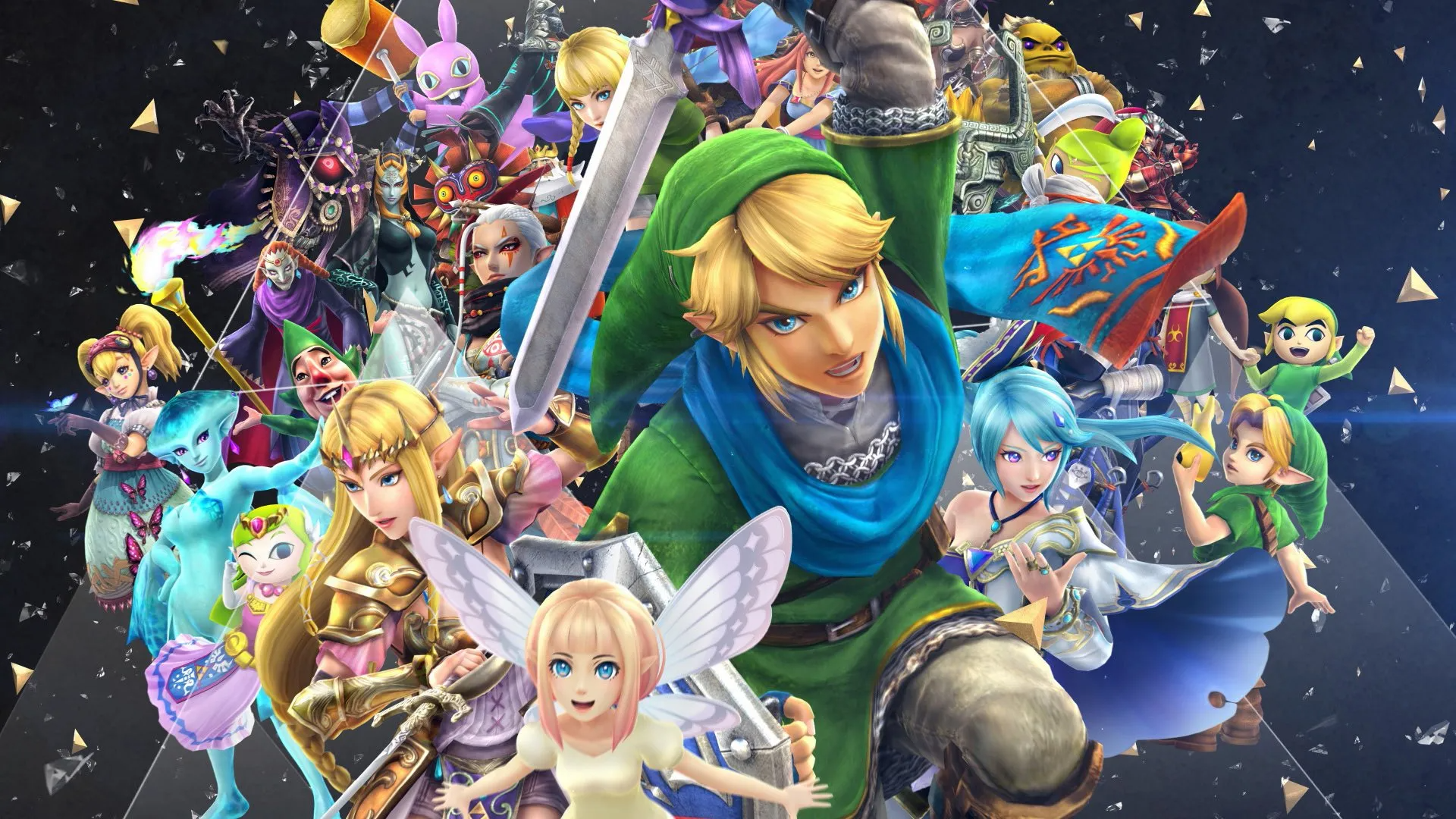
Further evidencing my above statement, here’s another Zelda spin-off just breaking into the Top 20.
Hyrule Warriors is largely remembered today for its cavalcade of fan service from top to bottom. As Brandon Schmitz, explaining the cultural relevance of the game’s crossover celebration, says, “Avengers-style crossovers may be all the rage these days – to a nauseating degree, if you ask me. But back in 2014, especially for such a one-off-centric series like Zelda, the notion of bringing all these legacy characters together was super refreshing. And speaking of which, the sheer variety of playable heroes and villains went a long way toward keeping this power fantasy fresh and interesting.”
Of course, one’s mileage with Hyrule Warriors truly depends on their tolerance for Koei Tecmo’s Warriors formula. For Connor Butler, that formula was largely effective: “While it built heavily on the hype and success of Dynasty Warriors, it also had its own Zelda charm. One of the things that drew me to the game was the emphasis on strategy in addition to combat. It was fun to order the different factions of the Hyrulean army, and plan an offensive and defensive setup.” But despite all that, one thing kept Hyrule Warriors from climbing higher on Connor’s list: “The only real gripe I have with this game is that, at the end of the day, it feels more like a Dynasty Warriors title than a Zelda title, but I think this game has made a name for itself as a Zelda game.”
Despite his own love for the game, Brandon is quick to recognize Hyrule Warriors‘ faults: “Although popular for its genre, the original Hyrule Warriors is definitely a game with niche appeal. With its simple, repetitive gameplay loop and near-total lack of exploration, I totally understand why it continually ranks so low on our list.”
But, Brandon also points out that we can’t forget the moment in history that Hyrule Warriors represents. “Sandwiched between the releases of Skyward Sword and Breath of the Wild, this game serves as a bombastic farewell party to the era of Zelda that began with Ocarina of Time.”
18. Phantom Hourglass
Highest Rank: 11 | Lowest Rank: 23 | Last Year’s Rank: 17 | Avg Points per Author Played: 6.6
5/30 staffers had not completed the game and did not rank it.
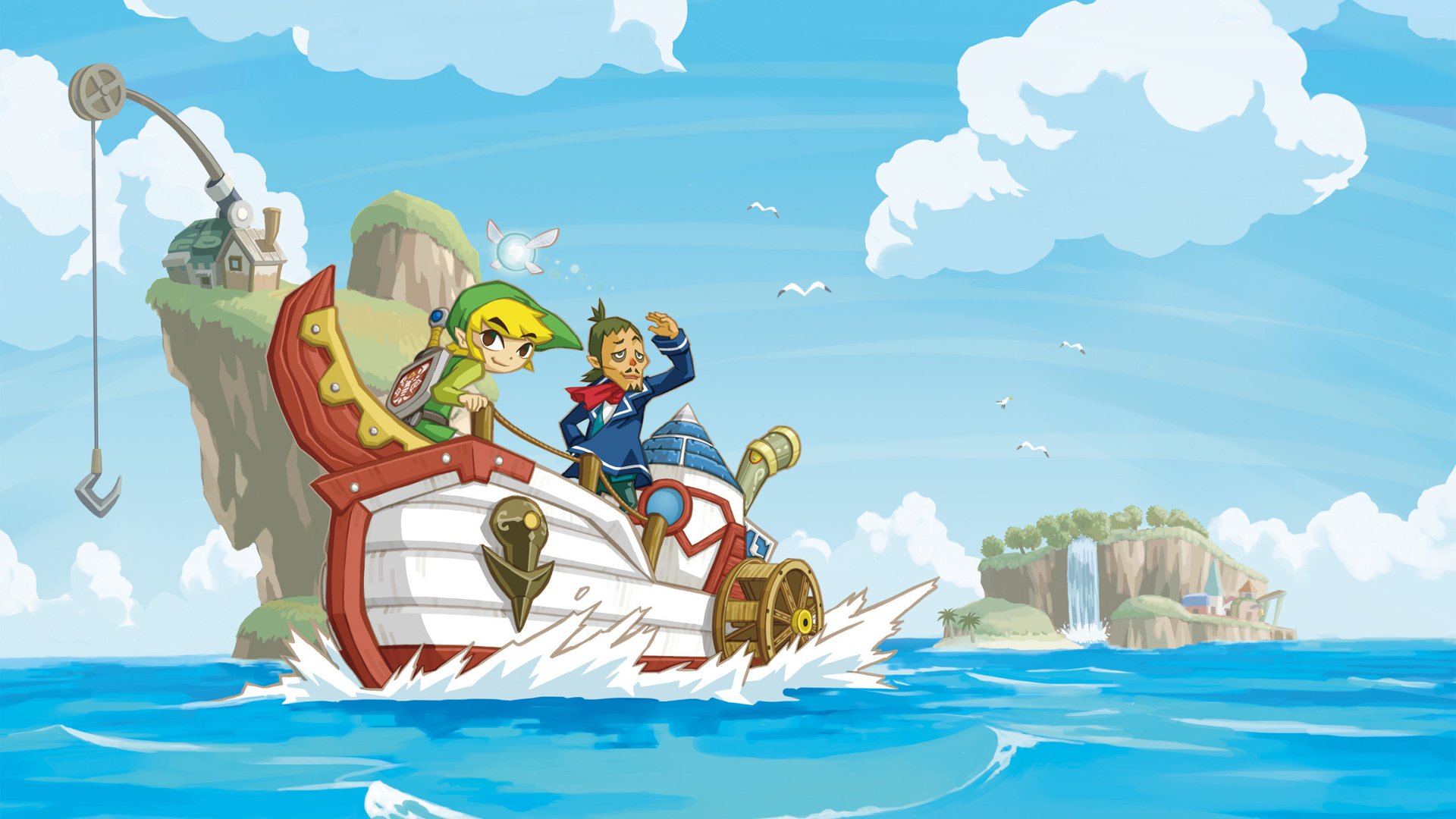
Though Phantom Hourglass has seen some light re-evaluation over the past few years, Zelda‘s first DS adventure remains firmly situated around this position on the list. This all comes down to, as Michael El-Ters describes, an assortment of sins.
“The first sin is Tetra being delegated to damsel in distress in the opening scene. Once she’s turned to stone, there’s no interaction with her until the end, and it’s disappointing. Link doesn’t get to team up with her pirate crew to reverse her fate, either; instead, Link is paired up with the grating Linebeck. On top of that, the Temple of the Ocean King gimmick is interesting on paper, but unsatisfying in execution. Playing through the Temple of the Ocean King segments is tortuous and far from fun. Top that off with multiple, required visits throughout the story, and it quickly becomes a dull experience. Then there’s the gameplay…”
Before we hear out Michaela’s gripes with Phantom Hourglass‘ gameplay, let’s first turn to Nick Miller on the subject: “If I could describe Phantom Hourglass in three words, it would be ‘DS tech demo.’ The Nintendo DS had some features that were unique to video game hardware at the time, and Phantom Hourglass makes use of all of it. You control Link, navigate menus, and select items with the touchscreen. You blow out candles by blowing into the microphone. There’s even that infamous puzzle where you need to close the DS to transpose the items from the top screen onto the bottom. This kind of hardware implementation helped solidify the DS as more than just a gimmick, showing that the touchscreen could be used for a serious gaming experience that would appeal to fans of all ages.”
Michaela meanwhile is less kind in her assessment: “Released on the Nintendo DS, Phantom Hourglass relies on touchscreen controls for everything. From movement to combat and puzzle solving, you had to hope your DS screen wasn’t already scratched up or hope you had a screen protector; otherwise the experience of playing Phantom Hourglass would certainly get it there. It makes me wonder if this game would have done better on a TV console.”
“In Phantom Hourglass, gameplay comes first and foremost,” continues Nick, “but I can only assume that the story took a back seat during the development process because it isn’t that great. This whole adventure is inconsequential in the grand scheme of things. It takes place in the faraway World of the Ocean King, and by the end of the tale nothing of meaning has changed with our main characters. As such, I often find my actions in the game unmotivated by the story and moreso just by the fun factor of playing, which is fine until the story demands you revisit the Temple of the Ocean King for the hundredth time. Being motivated by fun, the game’s pacing grinds to a halt in these moments because they are anything but fun.”
Michaela perhaps puts it best when she says, “Phantom Hourglass had the potential to be great, and instead, it feels like a wasted opportunity.”
17. Four Swords Adventures
Highest Rank: 5 | Lowest Rank: 22 | Last Year’s Rank: 16 | Avg Points per Author Played: 7.292
6/30 staffers had not completed the game and did not rank it.
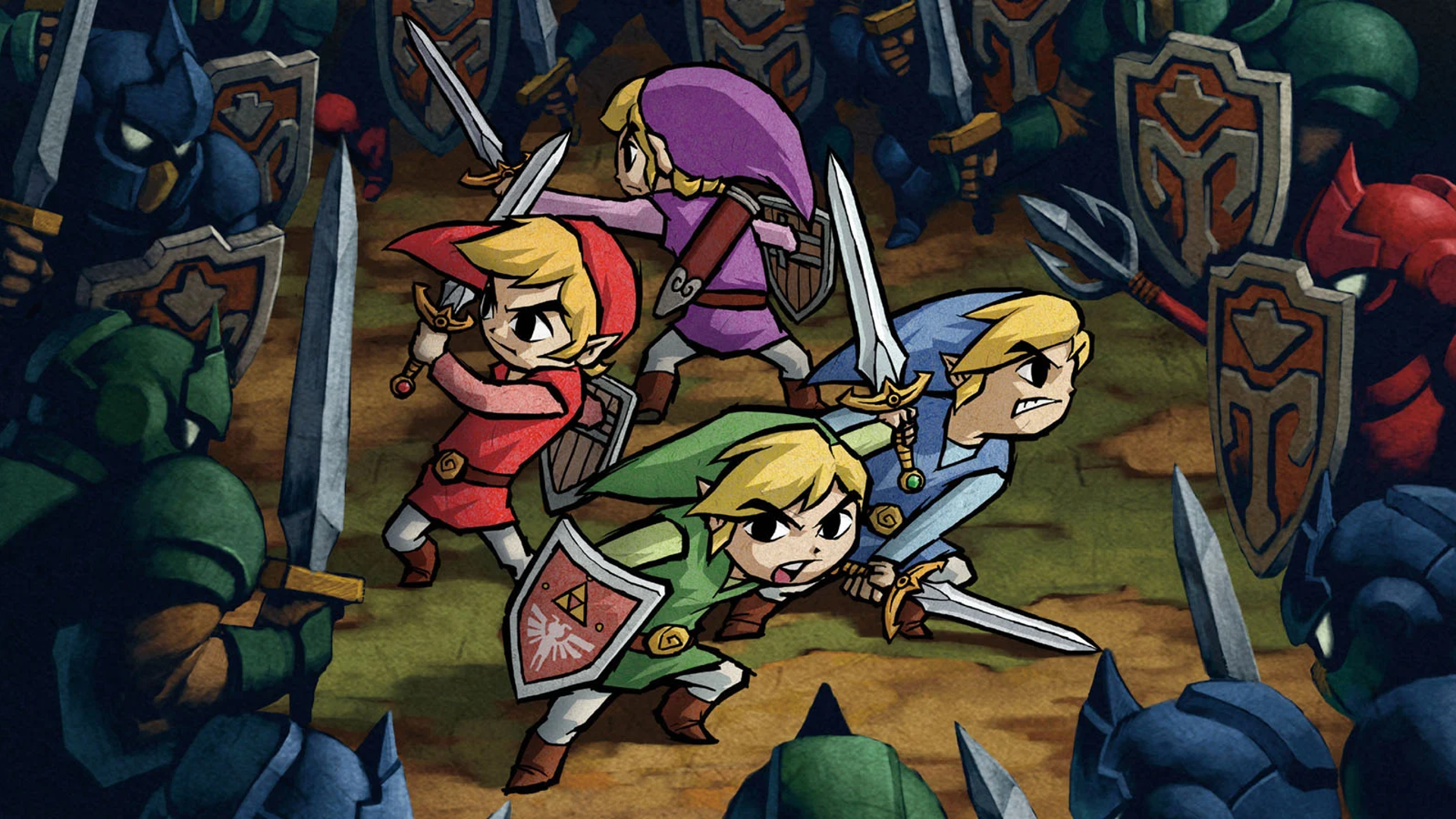
While Four Swords and Tri Force Heroes forever languish at the bottom of this list, Four Swords Adventures remains buoyed by a solid execution and a focus on fun.
“For those who have played Four Swords Adventures in its ideal environment, with four friends and four Game Boy Advance systems, the game is an absolute blast,” shares Rod Lloyd. “Solving clever puzzles, fighting mobs of enemies, and overcoming other diverse challenges with your friends is a rare novelty in Zelda, and this game does it better than the series’ other multiplayer offerings. With some competitive elements and plenty of occasions for buffoonery thrown in, you’ve got the best party game The Legend of Zelda has ever produced.”
Those party-game charms haven’t worked on everyone though. For David Lasby, who ranked Four Swords Adventures last on his list, such aspects are the very things keeping the game from greatness. “As a die-hard fan of A Link to the Past, one might think I’d be an ideal person to play Four Swords Adventures; the artwork, sprites, enemies, and much of the overworld are borrowed from my favorite game. Yet, the game frustrates me to this day; it feels too much like a mockery of the sequel I’d longed for as a kid. Fighting in formations, while clever and a great tool for puzzles, didn’t grant that feel of independence and exploration that I loved in A Link to the Past. I wanted the Legendary Hero once again wandering the wilds of Hyrule. Four Swords Adventures is more arcade than RPG, and that’s just not what I want from a traditional Zelda game.
“Don’t get me wrong; I love that Nintendo experiments with form – no other developer is as consistently creative or willing to take risks. In a twenty-game canon, Four Swords Adventures earns its place; it’s just not one that I like to revisit often.”
Rod has another theory on Four Swords Adventures‘ mediocre placement: “As has been the case for several years now, this game’s low ranking is likely due to its lack of availability. Like several titles released around the same time, Four Swords Adventures remains locked on the GameCube, forcing fans who want to play it to either shell out some cash on eBay or simply cross their fingers for a re-release.
“We are now seeing GameCube classics like Paper Mario: The Thousand-Year Door being ported to the Switch, so there may be hope yet for that latter scenario.”
16. Hyrule Warriors: Age of Calamity
Highest Rank: 4 | Lowest Rank: 23 | Last Year’s Rank: 12 | Avg Points per Author Played: 6.571
2/30 staffers had not completed the game and did not rank it.
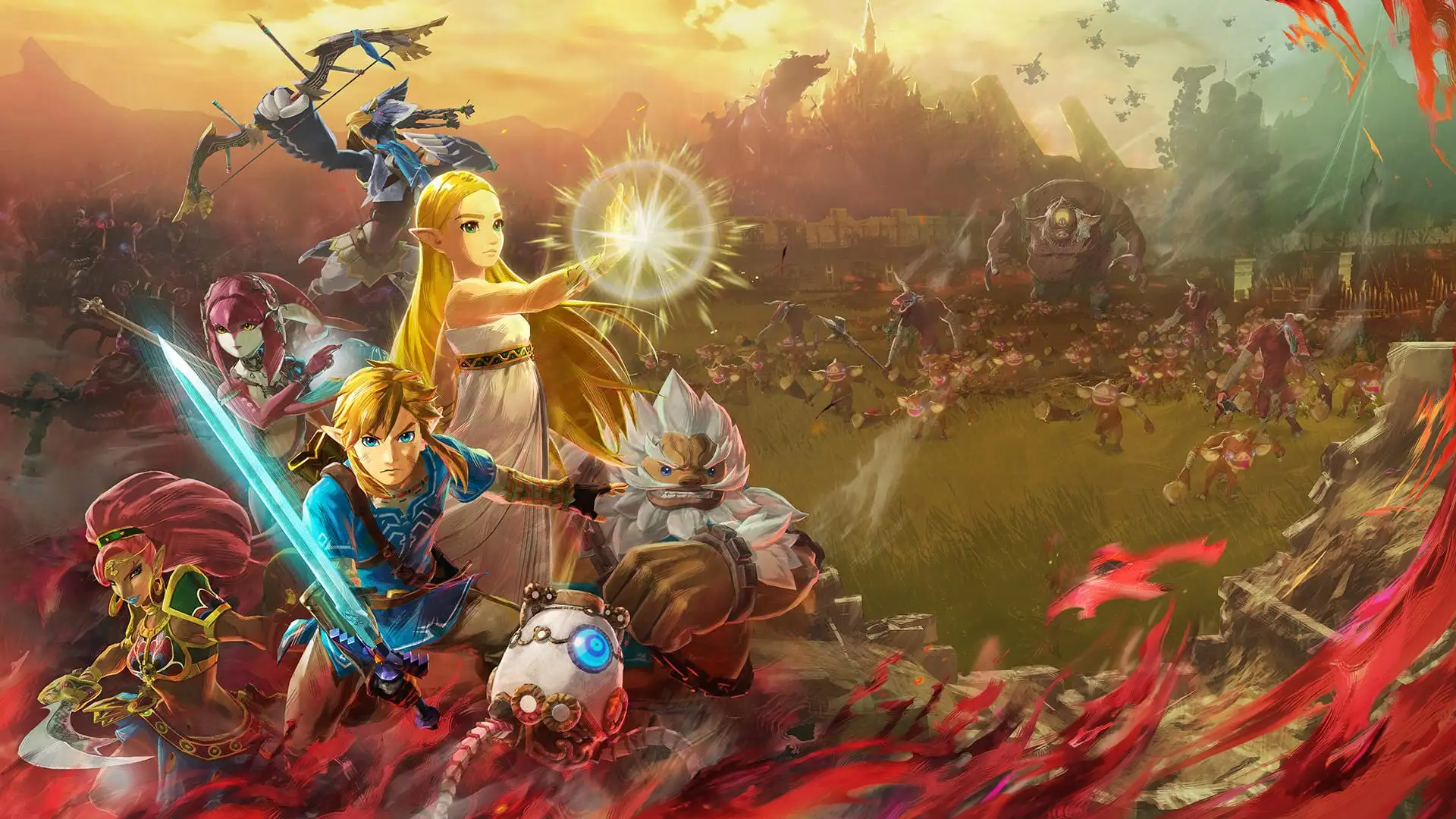
The highest ranked spin-off title on this list is also the one most firmly set in Zelda canon. The first Hyrule Warriors title was an unabashed side story outside the main series timeline, a quality that likely held it back in this ranking. Age of Calamity, on the other hand, has its plot connections to Breath of the Wild and Tears of the Kingdom to help it stay endearing to fans of those games.
That’s how Judy Calder sees it: “I really enjoyed Age of Calamity, which was quite unexpected since the Hyrule Warriors games have never been my cup of tea. However, I think the fact that this title gave us a look at Hyrule before the second Great Calamity is exactly what made me warm to it. I loved seeing different locations like Lon Lon Ranch and Akkala Citadel from a different perspective than what was available on the other Zelda installments on Switch.”
Interestingly, Hyrule Warriors: Age of Calamity fell four spots since last year, one of the biggest drops in this edition of Best Zelda Ever. Josh Wittmershaus has a pretty good explanation for Calamity‘s fall: “I speculate that part of what’s caused Age of Calamity to fall several spots down the list is the same reason as to why it ends up on the latter half of the Best Zelda Ever list in general: repetition and lack of variety create boredom, and can stale something that held a lot of early potential and was initially an enjoyable experience. While it survived its sophomore slump last year, digression caught up to this game. Ironically, the DLC that some were hoping would boost the game actually dragged it down, as they didn’t reveal many – if any – new enemies and bosses, and brought in new playable characters that didn’t match the originals.
“Unfortunately, for me and many others, the positive elements of this game – the story, the music, the pre-calamity Hyrule, the multiple Impas sword-dancing enemies to smithereens – don’t outweigh the repetitiveness that even a lover-of-the-grind could tire of.”
Like with its predecessor, one’s assessment of Age of Calamity really comes down to one’s tolerance for Warriors gameplay. The Musou action didn’t work for Josh, but Judy found plenty to enjoy. “The gameplay in this title is a blast. There was quite a bit of button-mashing on my end, but that seemed to fit perfectly with the hectic experience of facing hordes of enemies at once across a larger stadium, or doing everything I could to beat a powerful Lynel in a more limited space. Even better was the opportunity to battle as different characters that I’d only really liked before, but consequently came to love after experiencing them as my battle avatar.
“Ultimately, the only thing that holds this title back on my list is my enthusiasm for mainline Zelda games.”
15. Spirit Tracks
Highest Rank: 5 | Lowest Rank: 21 | Last Year’s Rank: 15 | Avg Points per Author Played: 7.846
4/30 staffers had not completed the game and did not rank it.
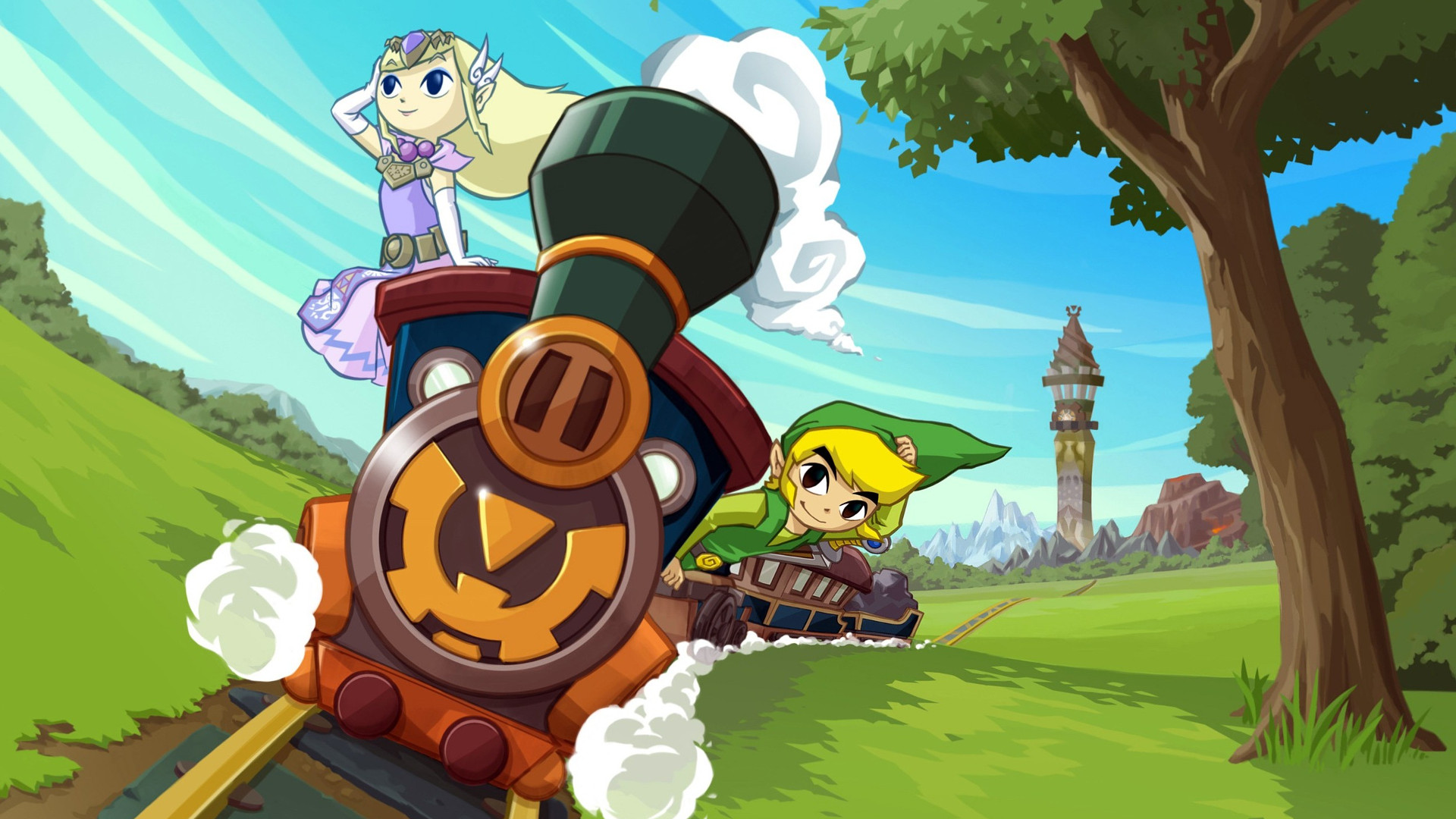
The Legend of Zelda: Spirit Tracks has spent the past five years of Best Zelda Ever flip-flopping with its predecessor Phantom Hourglass. We may never find a consensus on which Nintendo DS Zelda title is truly better, but for 2023 at least, Spirit Tracks can enjoy its higher standing.
“Spirit Tracks had very little need to be as good as it was,” proclaims Alex Weber. “The DS era of Zelda games could have been written off as two little, kooky side adventures – without much to them at that – if not for the majesty of Spirit Tracks. The game charms you in every way possible. The soundtrack is one of the best in the series, the story is all at once heartwarming and unexpectedly witty, and the adventure you go on encompasses your imagination without obnoxious parts of the game to pull you out of it (I’m looking at you Temple of the Ocean King).”
John Furby, though preferring Phantom Hourglass, can’t deny Spirit Tracks‘ charms: “This game had every ounce of heart and soul as its predecessor. The train mechanic was an interesting twist on exploration and playing most of the game with Zelda as your sidekick, in spirit form, was a welcome change to the ‘rescuing the princess’ cliché… The Zelda handhelds have always been a step above. They’re never just ‘lite’ versions of the main series or hastily produced cash grabs; the same effort put into the home console games is put into the portables and it shows.”
Despite their praise, neither editor could quite defend Spirit Tracks‘ controls (or Phantom Hourglass‘ controls, for that matter). “Using the stylus to move Link when there was a perfectly good directional pad right there on the DS was a bit frustrating for me,” charges John. “It’s hard to teach an old dog new tricks, as they say. And I’ll never forget the first time I had to blow onto the microphone to solve a puzzle. I was on a plane, sitting next to strangers, blowing on my DS, trying not to look like a crazy person. But I did it for Zelda.”
Alex comes to the same conclusion: “I sincerely believe that the only thing that pulls Spirit Tracks down as far as the list goes is that the DS controls could never have been perfect. And sure, they really aren’t; and it’s hard to pit it against games that control better and more consistently.
“But, if you ask me, this game could stand to be much higher.”
14. The Legend of Zelda
Highest Rank: 3 | Lowest Rank: 22 | Last Year’s Rank: 14 | Avg Points per Author Played: 7.724
1/30 staffers had not completed the game and did not rank it.
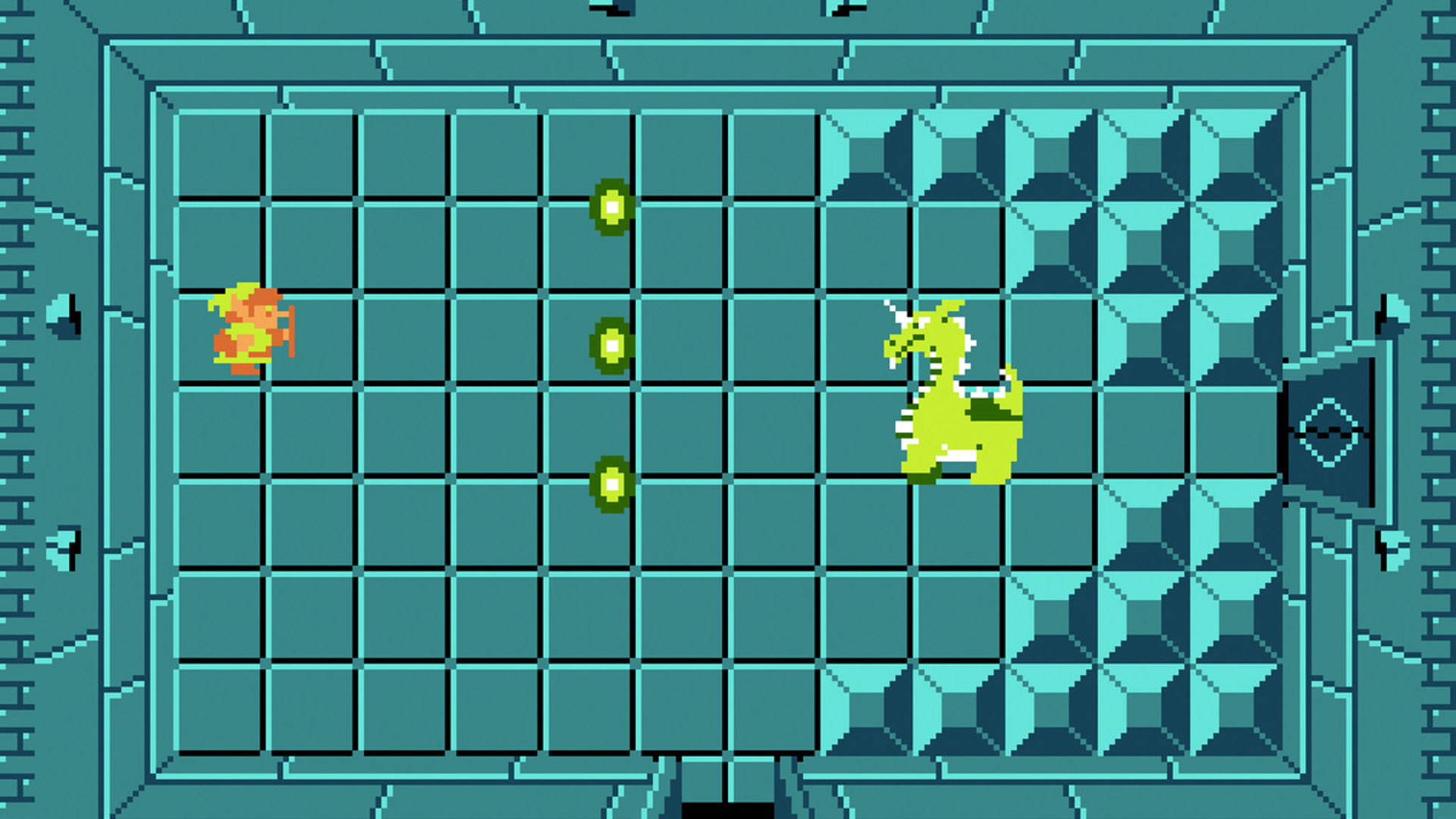
The game that started the legend takes 14th for the third year in a row! Despite its age, despite its crudeness, something about The Legend of Zelda keeps it captivating over 35 years after its initial release.
“If freedom were a game, it’d be this game,” declares John Piland. “You can complete nearly every dungeon in any order you choose and carve your own path as most of the map is accessible from the start — assuming you have the skill. You can even upgrade your sword, shield, and armor before the first dungeon, which really gives a feeling of power. I’ve replayed the game many times in the ten years since I first beat it, and rushing to upgrade my loadout is something I always look forward to.”
“There’s no denying that the original Legend of Zelda is among the most influential video games of all time,” adds Brandon Schmitz. “With a greater sense of freedom than virtually any game that preceded it, Link’s inaugural adventure has had a tremendous impact on the medium at large.”
But for every compliment paid to The Legend of Zelda, there is a caveat. As John puts it, “It could be said that the game has too much freedom, or at least fails to address it properly. There are parts where the entrance to a dungeon or a bombable wall are hard to identify, and the clues hard to find, incredibly vague, or simply nonexistent. I’m sure this led to some great discussion and rumor mills back in the day, much like the olden days of Pokémon, but that doesn’t necessarily absolve it of criticism.”
Brandon, meanwhile, can’t overlook the original game’s age: “Though I applaud the first entry for laying the foundation for so many other games, it is — admittedly — tough for me to return to in 2023. So much of what drew me to my first Zelda games — The Wind Waker and Ocarina of Time — is absent here. With only the bare minimum of contextual underpinning and almost no honest-to-goodness characters to speak of, the original Zelda feels more like a skeletal blueprint for the series it would one day become.“
To truly appreciate The Legend of Zelda today, one might need to put themselves in the shoes of a player in 1986. Consider Emi Curtis’ experience in her most recent playthrough: “I actually went and replayed this game this year. Last time I played it, I kept a guide with me and it was a bit like filling out a checklist. I decided this game deserved me playing it like it was originally intended to be played though. I let myself sort of embrace wandering around the map and only used my vague memory of the plot to guide me.
“I kind of got a very new profound experience doing that. It put me in touch with the original idea of the series and made me appreciate its origins a lot more. The age and simplicity of this original entry might be something some fans will never be able to move past, but I actually think it’s a much better game than people give it credit for. It’s worth it to give it a shot and let yourself take a step back to simpler 8-bit times.”
13. Oracle of Seasons
Highest Rank: 8 | Lowest Rank: 19 | Last Year’s Rank: 13 | Avg Points per Author Played: 8.815
3/30 staffers had not completed the game and did not rank it.
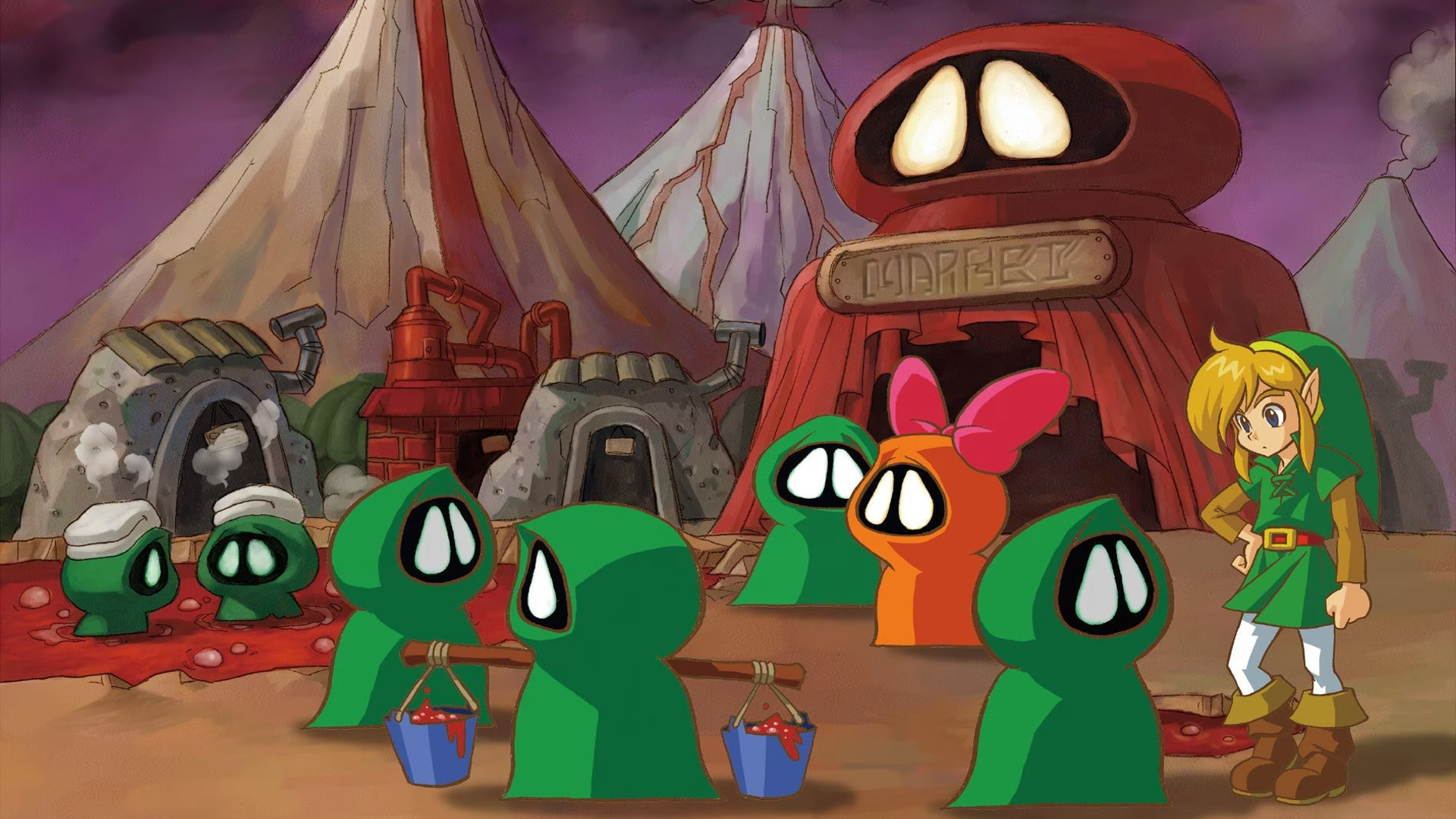
For several years, Oracle of Seasons enjoyed a higher Best Zelda Ever ranking than its sister game Oracle of Ages. But since 2021, the roles have reversed, with Seasons taking the lower position, despite its obvious charms.
Chakell Herbert, having played both Oracle games for the first time this year, finds plenty to love in Seasons: “I actually loved Seasons‘ use of the Rod of Seasons more than Ages‘ time travel mechanic. Maybe it’s just my cheesy love of the four seasons in real life, but I loved how it could switch up an area and give you greater access to things! I also loved the world of Subrosia lurking beneath Holodrum and the shenanigans happening down there. This game has a lot of charm to it!”
“While Oracle of Ages is all about the puzzle challenges, Oracle of Seasons features fantastic combat challenges,” David Lasby elucidates. “There are a handful of boss fights in the game that left me feeling legitimate gamer pride upon defeating them, the culmination of dozens of tries, memorization of attack patterns, and careful planning of strategy. The game’s ending is true to its MO; General Onyx is one of the best 2D bosses in the entire Zelda series. His transformation into a Dark Dragon, a giant sprite taking up the background as Link faces him in the foreground is phenomenal game design and art direction. For me, this final fight makes Oracle of Seasons one of the best 2D Zelda games ever.”
Perhaps it all comes to personal preference, in the end. Do you prefer combat or puzzles?
One thing is for certain though: both Oracle games, for better or worse, are cosmically tied together as a collective whole. As Chakell mentions, “The struggle with the Oracle games is that they are two halves of a whole that do not quite work on their own. To me, they seem incomplete and fall just a bit short if you don’t have both of them linked to one another, and I think that’s one of their flaws that keeps them on the lower end of this list.”
12. Oracle of Ages
Highest Rank: 4 | Lowest Rank: 18 | Last Year’s Rank: 11 | Avg Points per Author Played: 10.25
6/30 staffers had not completed the game and did not rank it.
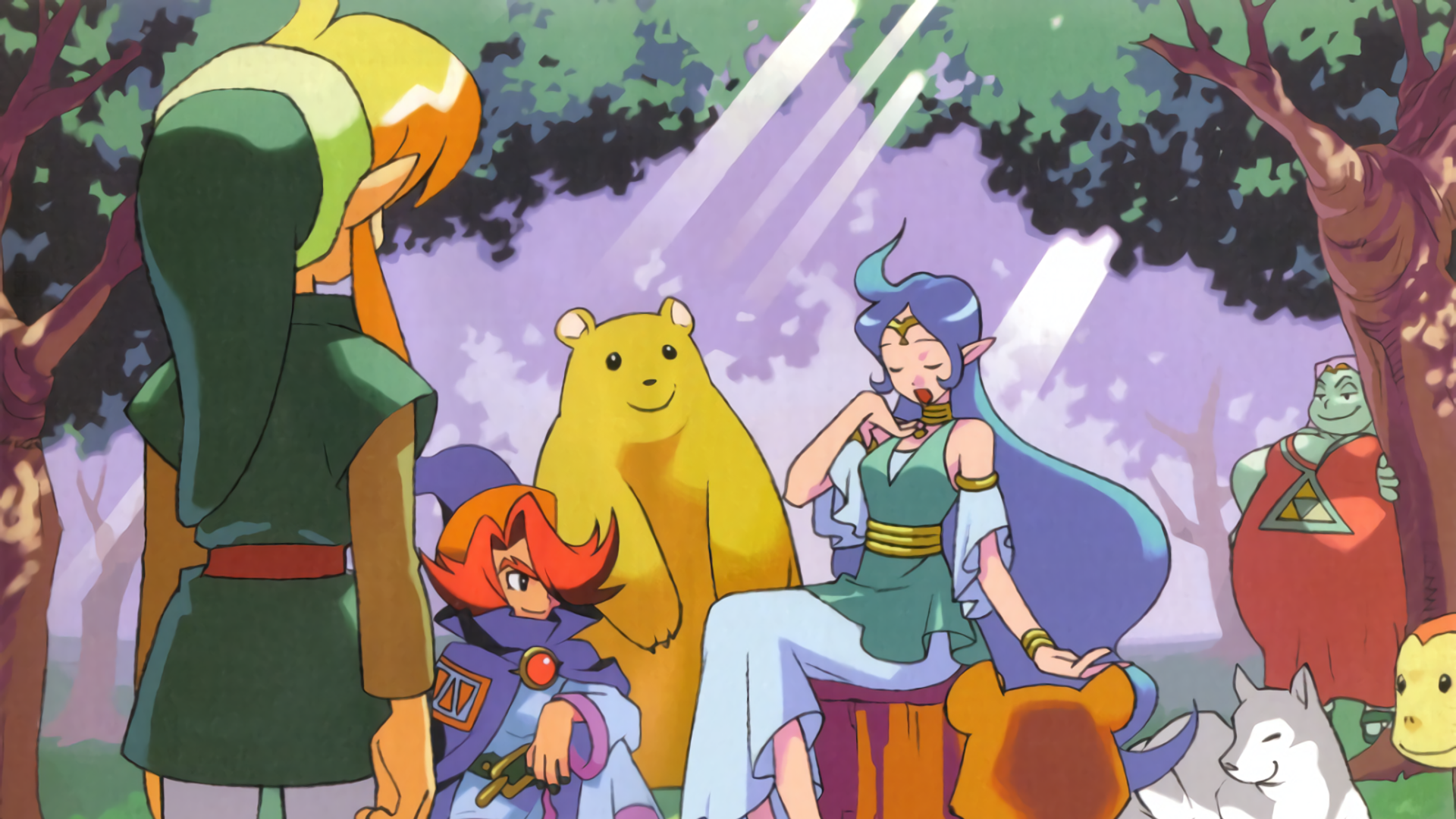
After a few years of being separated by Hyrule Warriors: Age of Calamity, the Oracle games are once again side-by-side in the ranking! And as mentioned above, Oracle of Ages comes out on top this go around.
So what makes Ages superior to Seasons for so many of our staffers this year? For Leslie Jacobson, it’s the puzzles and the story: “Back when the Oracle games came out, my brother got Seasons and I got Ages. I wound up liking Ages better because of its focus on puzzle-solving and having a deeper story than Seasons. The time-traveling aspect makes for some really good puzzles, as you have to figure out how your actions in the past can change the future. For a 2D game, it has great underwater exploration and seeing Link as a little mermaid was funny.”
Charles Xavier has his own theory on what gave Ages the edge this year: “Oracle of Ages is overall an excellent game, but one always caught in debate over where it should rank next to Oracle of Seasons. Ultimately, both games are solid; preference on one or the other typically just boils down to which one someone played first. In my case, that was Oracle of Seasons.”
However, despite preferring Seasons, Charles can’t deny Ages‘ strengths: “While Seasons is combat focused, Ages hinges more on puzzles. It also has a much more compelling story. However, this comes at the cost of the game feeling much more linear. That said, the linearity never bothered me because there was always some puzzle to solve, even before getting into a dungeon. A lot of my favorite parts of this game are those sections between dungeons, like losing all your items to the Tokay on Crescent Island.
“Oracle of Ages has a ton of charm, and might be in the running for containing some of the best dungeons out of the 2D Zelda games, which is a big accomplishment!”
“I’m glad that the game is now available on Nintendo Switch Online,” concludes Leslie. “More people finally have access to this clever 2D game that delivers ‘traditional’ Zelda-style gameplay while carving enough of its own identity.”
11. The Minish Cap
Highest Rank: 3 | Lowest Rank: 14 | Last Year’s Rank: 10 | Avg Points per Author Played: 12.321
2/30 staffers had not completed the game and did not rank it.
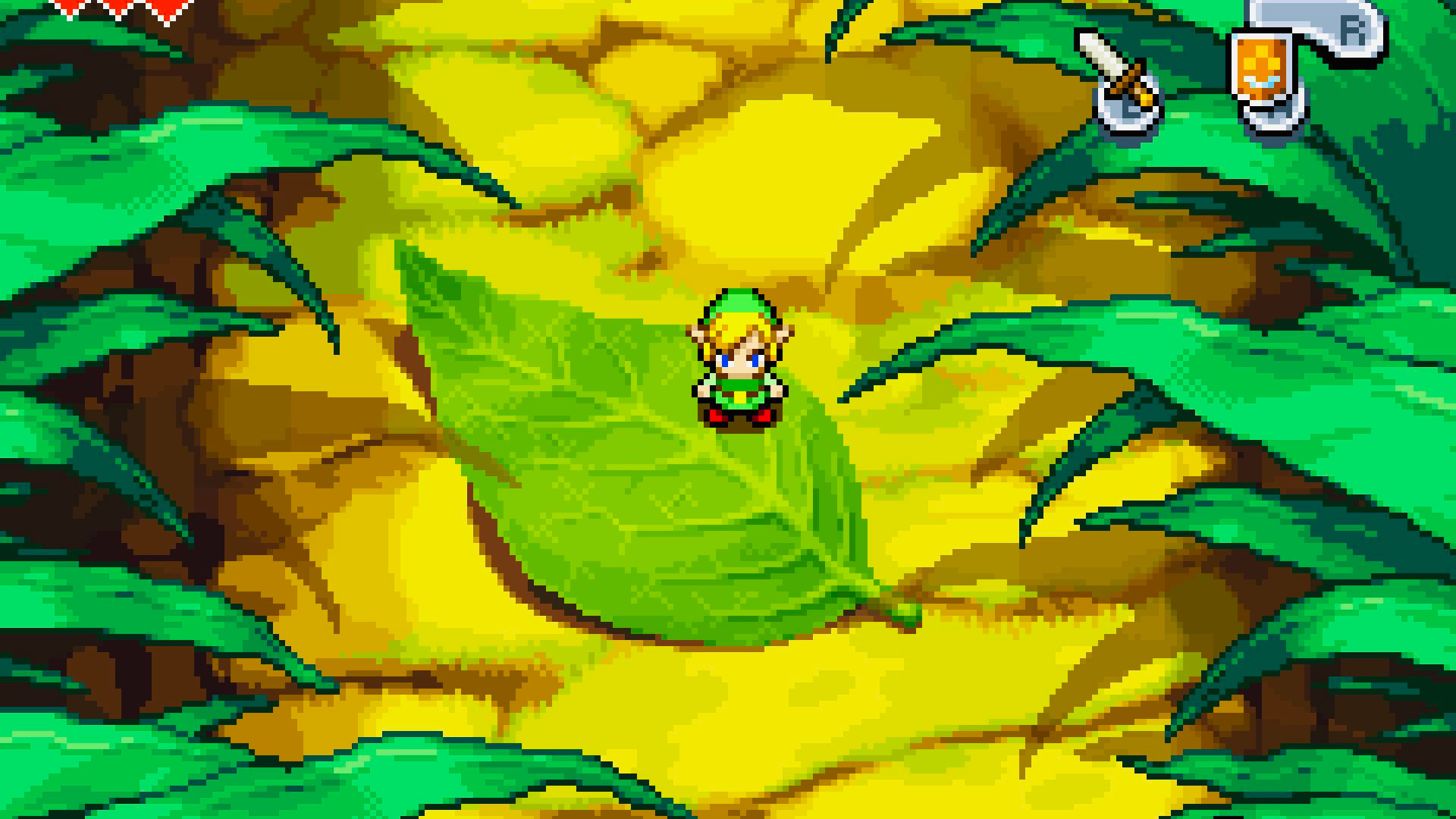
The Legend of Zelda: The Minish Cap represents the spiritual middle of the ranking, sitting on an island of its own between the games that earned under 300 points and those that earned over 400. In this way, one could say it separates the merely good from the truly great.
Does The Minish Cap deserve to stand among the greats then? Sean Gadus thinks so: “After their success with the Oracle games, Flagship and Capcom created one of the best Game Boy Advance games, an impressive Zelda title that hits all of the series’ staples while also establishing its own identity.”
Kora Burton doesn’t disagree: “The Minish Cap is a feel-good, well-executed Zelda that relies on your previous experience playing Zelda games – i.e. knowing generally how the puzzles work, making use of tools found in dungeons, etc. – and adds something new and interesting through the ability to turn Minish-sized to circumvent a variety of inventive obstacles. Both pieces together require you to exercise your well-worked Zelda muscles in new ways, making for the kind of series title you can feel both challenged and comfortable playing.”
Even team members who ranked this title lower on their lists have nice things to say. “The Minish Cap represents the Zelda series at its most workmanlike, ” cedes Brandon Schmitz. “Despite not being among my favorite entries, it’s a reliably entertaining adventure that checks virtually all the boxes of what one would expect from Link’s 2D outings. Its depiction of Hyrule is fairly generic, though the game still boasts just enough unique elements to solidify its own identity. The titular Minish mechanic, especially, adds some nice flavor to what is otherwise a pretty standard Zelda quest.”
“The new core mechanic (shrinking down to the size of the ant) is an interesting mechanic that opens up new ways to explore space,” continues Sean. “Many of the areas in the world are set up as navigation puzzles that require the player to cleverly use the game’s shrinking mechanic to fully explore areas; this is an experience that can feel incredibly rewarding when it works, but it can also be a bit frustrating at times. Minish Cap should also be commended for fleshing out the character Vaati, a villain that first appeared in Four Swords. Minish Cap built out the character’s backstory and made him much more interesting.”
And on top of mechanics and story, one can’t ignore The Minish Cap‘s overwhelming charm. As Kora imparts, “The fuzzy-headed young Link of this title may be my favorite child Link in the series given his adorable design, fluid movements, and satisfying chibiness. I also really love Link and Zelda’s relationship as longtime childhood friends. There is something deeply warm and knowing about The Minish Cap’s sound design in particular, borrowing many familiar cues and themes from the 64-era games.
“While the games above The Minish Cap on this list are all deserving of top spots, I’d argue that this little gem deserves a slightly higher ranking.”
10. A Link to the Past
Highest Rank: 1 | Lowest Rank: 20 | Last Year’s Rank: 4 | Avg Points per Author Played: 14 | First-place finishes: 1
1/30 staffers had not completed the game and did not rank it.
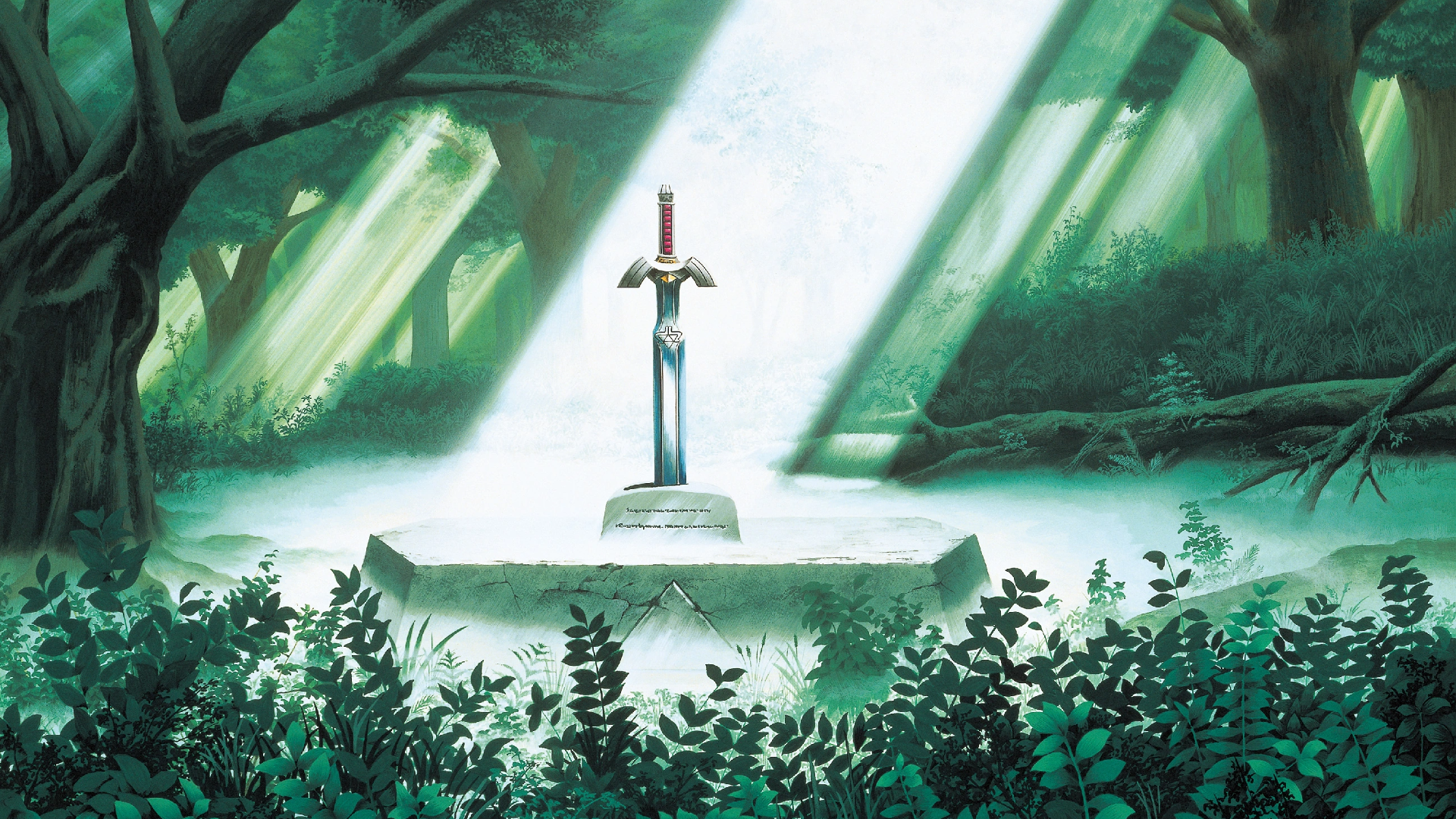
What blasphemy is this?! How could a revolutionary and timeless adventure like A Link to the Past tragically fall six spots since last year?!
Before we answer those questions, allow me to point out that the tenth and seventh spots on this list were separated by only seven points. A single person could have drastically changed the way A Link to the Past and the following three titles were arranged in this ranking. This particular range on the list is definitely the most hotly debated, so please consider that fact when leaving your angry comments below.
No one was more outraged at A Link to the Past‘s fall than Sean Gadus: “Somehow, one of the best games of the 1990s, and one of the most influential Zelda games, has become underrated. A Link To The Past, along with Super Mario World and Super Metroid, is emblematic of how Nintendo learned from their experience designing games in the NES era and harnessed incredible new technology in order to create games that were more mechanically complex, more aesthetically pleasing, and more polished than their predecessors. A Link to the Past remains a tour-de-force filled with two grand worlds, clever puzzles, massive bosses, and a myriad of secrets to unearth.”
“The Legend of Zelda: A Link to the Past is, to me, the peak of the 16-bit era,” agrees Rod Lloyd. “A touchstone for the entire industry, the game provided a breathtaking sense of scale and an unmatched sense of adventure. It unquestionably wowed in the presentation department, with a masterful composition of charming visuals, epic music, and an affecting story. And it was packed to the brim with content, guaranteeing that players would want to explore every corner of Hyrule for secrets (when not progressing through the meaty main quest).”
“Players can thank A Link to the Past for cementing the concept of dungeon themes, something the previous two games had merely dabbled in,” resumes Sean. “And A Link To The Past is an impressive experience that continues to inspire developers, particularly smaller independent studios. The art, gameplay, and world design of A Link To The Past have left an indelible mark on the video game industry.”
So, with such glowing praise, why the drop this year? Maybe Judy Calder has an answer: “I didn’t rank A Link to the Past very highly on my Best Zelda Ever list. However, there’s definitely a valid reason for that, considering I didn’t play the game until more than 25 years after its release date. I’d experienced so many wonderful 3D Zelda titles before playing this one that its ingenuity and sense of adventure was, sadly, lost on me by comparison.”
“I want to make clear that I can, indeed, appreciate A Link to the Past, even if I don’t consider it ‘one of the greats,'” Judy contends. “After all, Zelda dungeon themes wouldn’t be what they are today if it weren’t for this game; and without its introduction to parallel worlds and iconic items like the Master Sword, we might not have experienced other outstanding installments from the franchise in the way we have to date. And, importantly, the game is still very playable, even by today’s standards.”
In the end, A Link to the Past, like us all, might just be at the mercy of time. Consider Rod’s own sobering realizations about the game: “Over time, I’ve come to believe that other top-down Zelda games (chiefly A Link Between Worlds and Link’s Awakening 2019) beat A Link of the Past at its own game, simply by the fact that those titles take advantage of 20+ years of quality-of-life improvements and conveniences. A Link to the Past in no way needs a remake — it stands the test of time better than most games of its era — but without one, its placement on this list might forever be dragged down by its age.”
9. A Link Between Worlds
Highest Rank: 1 | Lowest Rank: 15 | Last Year’s Rank: 9 | Avg Points per Author Played: 14.607 | First-place finishes: 1
2/30 staffers had not completed the game and did not rank it.

As someone who has ranked A Link Between Worlds at the top of his list every year for the past seven years, I never thought I’d see the day it surpasses its Super Nintendo predecessor in the ranking. It’s hard to believe that it actually happened. But when more than half of Zelda Dungeon’s staff ranks A Link Between Worlds higher than A Link to the Past, this outcome shouldn’t come as a surprise.
“I grew up playing A Link to the Past and loved it,” Chakell Herbert tells us. “But to me, A Link Between Worlds just seems to have more heart and depth than the original. The art style is charming, and the ‘choose your own path’ mechanic works beautifully and still allows the story to be linear and solid. The insanely creative use of the merge ability makes temple trotting and puzzle-solving so enjoyable and memorable.”
One thing our editors all agree on is that A Link Between Worlds is immediately endearing. Heather Beard, for example, states, “There have been very few games that have captured my interest nearly instantly. A Link Between Worlds was, surprisingly, one of those games… I was immediately taken in by the game’s charm, the items, gameplay mechanics, and story. I found myself surprised that I had waited so long to play.”
Everyone also agrees that A Link Between Worlds is easy to love. Josh Wittmershaus credits the game’s map to that fact: “Reusing the same map for a new Zelda game is as controversial as it’s ever been. When I first picked up A Link Between Worlds, I was admittedly nervous that I would just be playing a graphic’d-up remake of A Link to the Past. I was pleasantly surprised, and I feel strongly that the reimagining of a familiar map is part of what makes this game so fun to play and easy to love. While there are many parallels to the aforementioned game aside from the map, A Link Between Worlds truly shows that an old map won’t necessarily hold a game back, and it’s hard to imagine this game in any other setting.
“It’s placement comfortably in the top ten is a testament to how loved this game is, even when surrounded by competitive company.”
Heather describes the game in similar terms: “I understand why the game is loved so much, and it holds its own against other top contenders in this list. The game’s gimmick of turning into the wall painting makes my little artist’s heart so happy. The enemies and dungeons are thoughtful, and I love visiting Ravio to rent out or buy weapons and tools… It is a Zelda game that I urge everyone to pick up and try sometime. It doesn’t take long to fall in love with the story, and it’s one that will continue to be beloved by those in the Zelda community.”
“I only wish all Zelda fans knew what this masterpiece of a game has to offer,” Chakell intimates. “It’s often overshadowed by the larger games, but it deserves to stand as a top contender in the series.”
8. Skyward Sword
Highest Rank: 1 | Lowest Rank: 21 | Last Year’s Rank: 7 | Avg Points per Author Played: 14.207 | First-place finishes: 1
1/30 staffers had not completed the game and did not rank it.
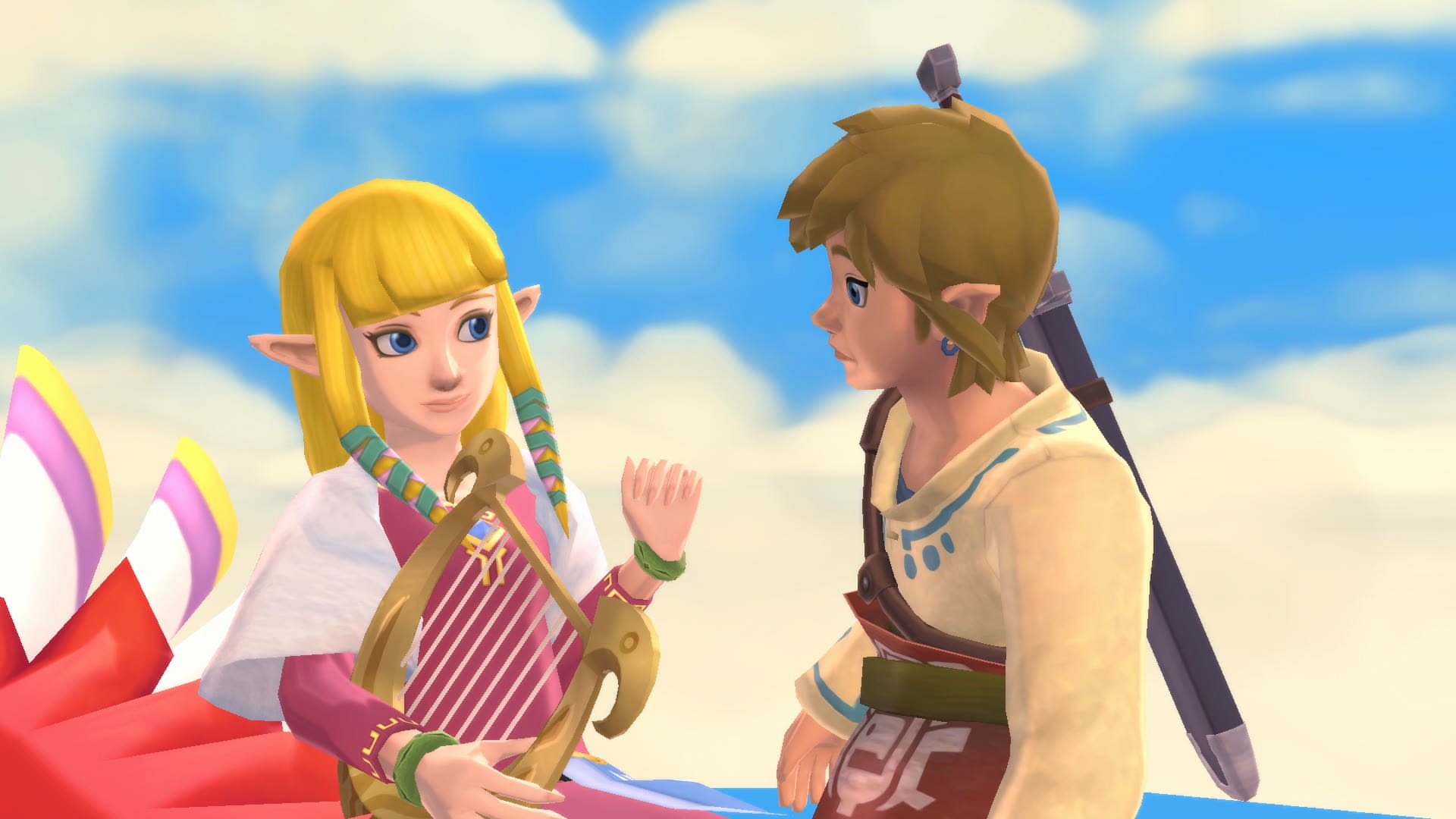
Despite its reputation as a polarizing Zelda game, Skyward Sword ranked relatively high on many staffers’ lists in 2023. As we’ve seen the past few years, the 2021 release of Skyward Sword HD, with its many quality-of-life improvements, might have had something to do with that.
Consider how our writers discuss the original release. “Skyward Sword feels like one of those games in which you have to push through the gameplay itself to get to the good part,” expresses Kora Burton. “Individual puzzles and adventures can be fun and engaging, and the pockets of the world you’re allowed to explore feel richly executed, if conspicuously fenced in. But at any moment along the way, thinking too much about all the repetition of areas and fights that lie ahead between you and the game’s end can feel suffocating.”
Nick Miller agrees, saying, “The constant recycling of content, the incessant hand-holding, and quests like collecting Tadtones that exist for no reason other than to pad out the game’s length make Skyward Sword an absolute chore for me to play.” Those are some harsh words for the eighth highest game on this list.
“However, pushing through the repetition and the fatigue brought on by the game’s overall linear setup is well worth it,” contends Kora. “And the HD release on the Switch with button controls and quality-of-life updates make completing the game more doable for those who found the original version difficult to push through.”
Heather Beard was one of those players. After confessing to “loathing the motion controls” of the original, she explains that, “It wasn’t until the HD re-release in 2021 that I finally gave Skyward Sword another chance. I only wish it had been released sans motion controls at the start, because the game is truly lovely, and it’s one that I cherish so, so much.” Thanks to its remaster, Skyward Sword now sits near the top of Heather’s list. “Skyward Sword does a tremendous job linking all of the stories we love together. It boasts one of my favorite dungeons and boss fights of all time with Ancient Cistern and the battle with Koloktos. The story and music are beautiful, and we get to see where it all began.”
Even Skyward Sword‘s biggest detractors have some nice things to say. Despite his “rocky relationship” with the game, Nick admits that “there is a lot that Skyward Sword does right. Skyloft and some areas on The Surface are phenomenal. The Lanayru Desert in particular has an excellent gimmick in the Timeshift Stones that kept each revisit feeling fresh. The game’s soundtrack is also among the best in the series. The Skyloft theme and “Ballad of the Goddess” are both songs that I revisit regularly to this day. Even the motion controls were great. They are a natural fit for the series, and a necessary inclusion on a console like the Wii, even if they were alienating to some players.”
To Heather, Skyward Sword is, all in all, “a triumph:”
“The game does baby you a bit, and there are portions of the game that do get a little bit repetitive, but on the whole, Skyward Sword is a masterpiece among Zelda games. From adventuring on the back of your Loftwing in flight to traversing the foreign lands below, Skyward Sword has something for everyone to love. “
And to Kora, the game captured an important moment in Zelda history:
“The Skyward Sword era of was The Legend of Zelda at its most vibrant, most romantic, and most optimistic, a story told at the beginning of the great cycle giving birth to the series timeline revered at the time.”
7. Link’s Awakening
Highest Rank: 1 | Lowest Rank: 21 | Last Year’s Rank: 8 | Avg Points per Author Played: 13.767 | First-place finishes: 1
0/30 staffers had not completed the game and did not rank it.
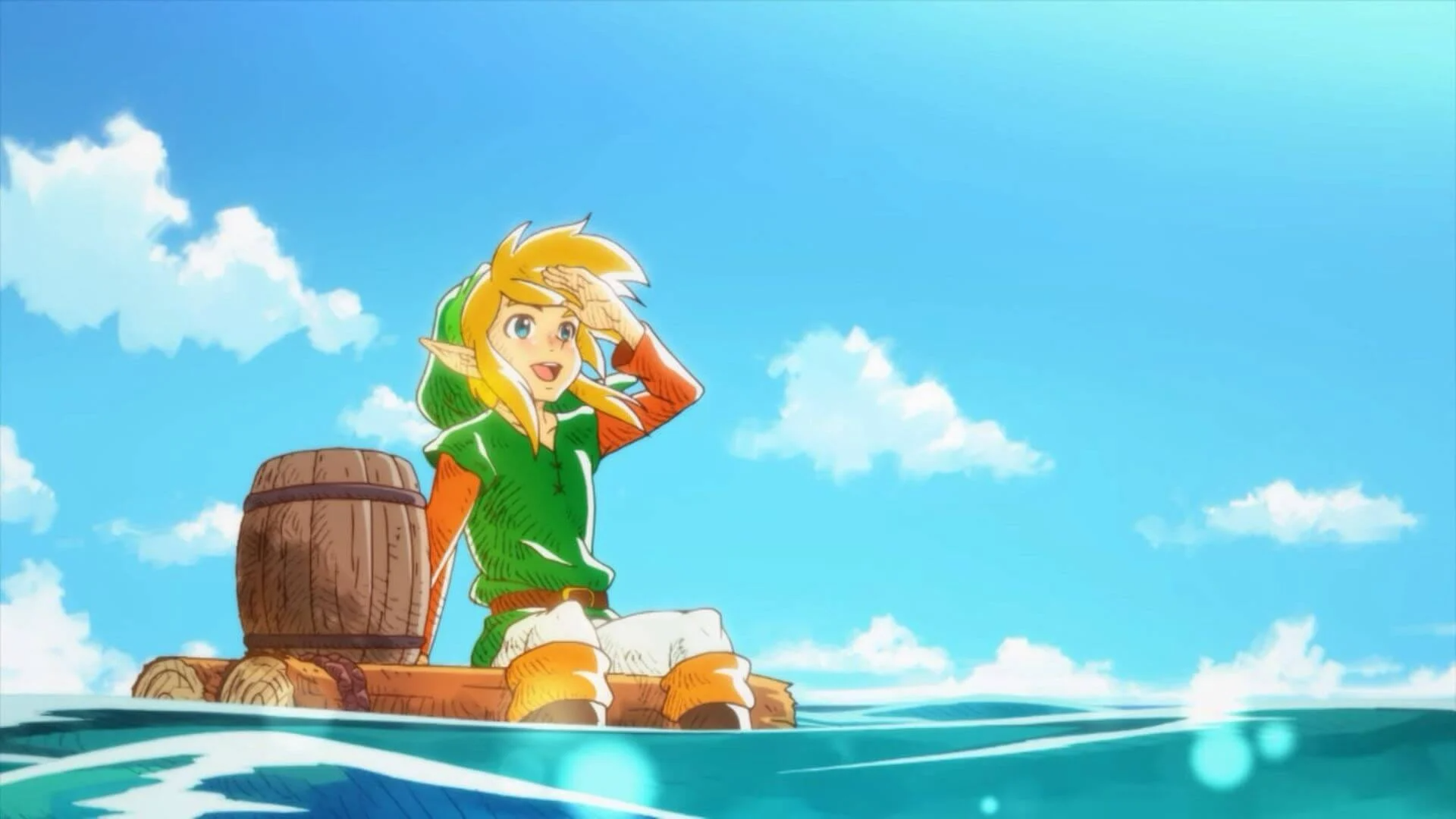
The Legend of Zelda: Link’s Awakening returns to the seventh spot this year, and, for the first time in several years, finds itself at the top of an individual staffer’s list. More and more people, it seems, are — pun intended — waking up to this game’s greatness.
“By this point in the original Game Boy’s lifespan,” discusses Kristen Rosario, “only a few games truly defined what it meant to take your adventure on the go. Link’s Awakening was one of them. What started as the series’ first foray into the world of handheld gaming has become a key lesson of not judging an adventure by what system it’s on. Exploring Koholint Island alone gives you so much in terms of dungeons to explore, quests to find, and characters who you feel have been living there forever. The restrictions they had for music on the Game Boy didn’t stop them from delivering what many consider to be some of the best tunes in the entire franchise. And who can forget the unforgettable story, as you unravel it dungeon by dungeon, only to find out that not everything is what it seems.”
“The original Link’s Awakening was a triumph,” seconds Nick Miller. “It cemented Nintendo’s confidence in their handheld console and proved that the Game Boy was capable of more than just downgraded versions of home console games. While I certainly have an appreciation for the classic, it was the 2019 remake of Link’s Awakening that placed this game among my favorites in the series. Everything about this game is just so darn charming! The remake takes on this claymation-esque art style, with rooms and landscapes appearing as dioramas ripped straight out of a Rankin/Bass holiday special, with a soundtrack to perfectly back it up.”
So what’s keeping Link’s Awakening from reaching the heights of the games listed below? Emi Curtis, a defender of the Oracle games, has a few ideas: “The bosses are tedious and unfun, many of the dungeons have very little to distinguish them apart, and the inclusion of enemies from the Mario universe really take me out of it every time I see them. Even with the new coat of paint the remake offered, Koholint Island remains one of the more absolutely boring locales Link has traversed.” Ouch.
“That being said, Marin is one of my favorite characters in the series, and the game certainly can’t be faulted for lack of creativity.”
All in all, no one can disagree that Link’s Awakening made the most of its modest size. “What I love most about this game is how it wastes nothing,” caps off Nick. “Due in part to the hardware limitations of the Game Boy, developers made the most out of everything they included in the game. Link’s equipment in particular is utilized to its fullest potential in a way we’ve rarely seen in the Zelda series. Most items have multiple uses so they see frequent use in and out of dungeons. This game also introduced the ability to combine the effects of different items, like using Pegasus Boots and Roc’s Feather to jump greater distances.
“Nothing here is wasted, everything has value, and I absolutely adore Link’s Awakening for just that fact alone.”
6. Twilight Princess
Highest Rank: 1 | Lowest Rank: 15 | Last Year’s Rank: 3 | Avg Points per Author Played: 15.241 | First-place finishes: 3
1/30 staffers had not completed the game and did not rank it.
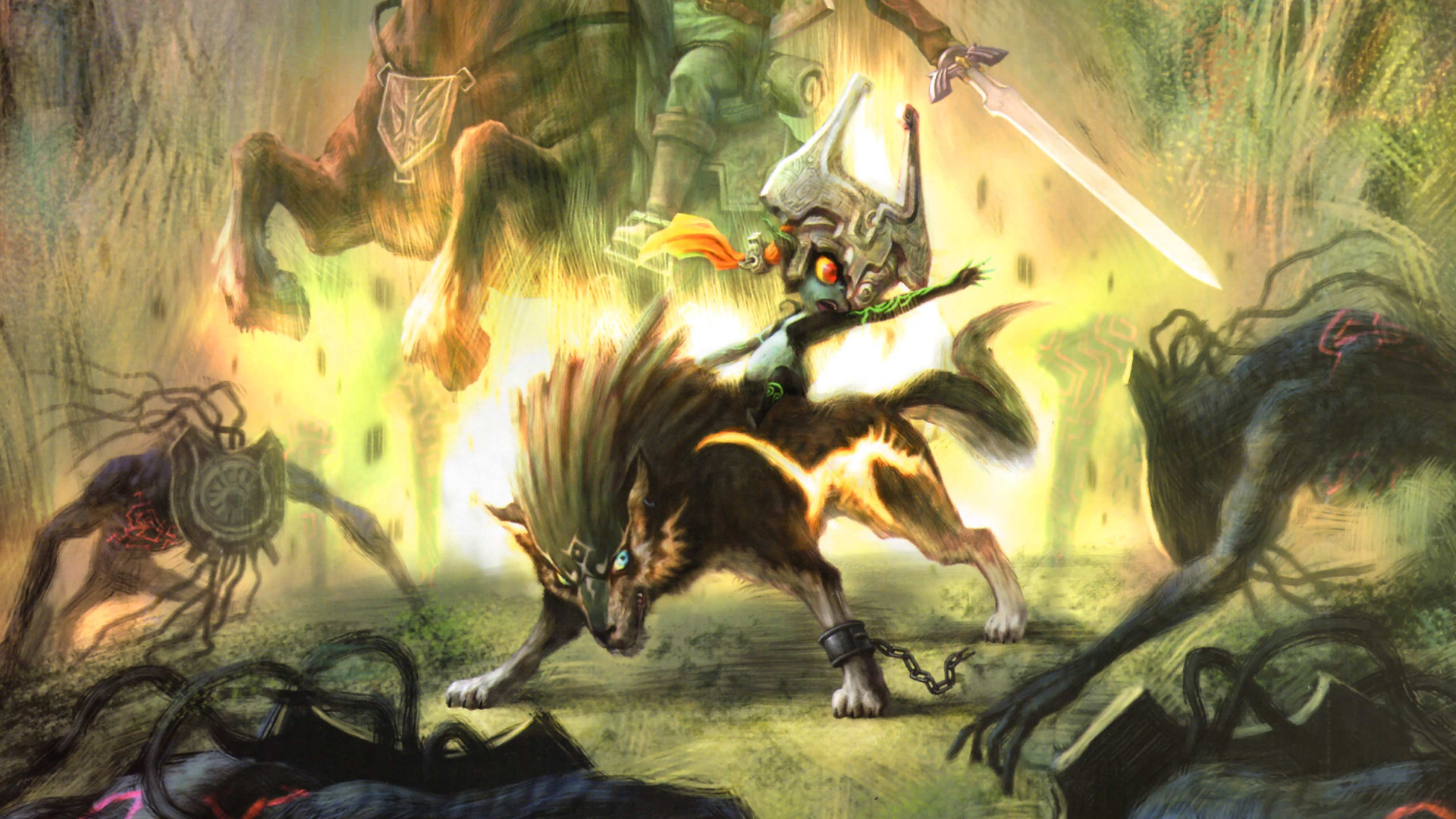
With the most hotly contested portion of the list behind us, we now arrive at, far and away, our highest point earners. Every game from here on out topped at least two staffers’ individual lists, so you know these are the Zelda series’ true cream of the crop.
Falling just short of the Top Five is Twilight Princess, a game that has a personal connection with many of our writers. “Twilight Princess was one of the first games I remember watching my brother play,” recounts Connor Butler. “All I can remember from those days is how cool the game looked. Every character and enemy has a distinct and iconic look. I used to pretend that I was the Hero of Twilight, and that I could turn into a wolf!” We’ve all been there, surely. “The dungeons are brilliantly designed aesthetically, and the puzzles in them feel satisfying to complete and figure out. The combat in the GameCube and HD versions of the game felt like a huge improvement on the combat systems from Ocarina of Time and Wind Waker, and the bosses were so much fun.”
Emi Curtis is equally sentimental: “Twilight Princess will always be a bit special to me as the very first Zelda game I actually finished. I got a fair bit into The Wind Waker, but I fell off on the Triforce Hunt. Twilight Princess had me hooked from start to finish though. Between the grittier style, having Midna as a much more engaging and present companion than Navi or King of Red Lions, and just simply the intuitive dungeon design, this game just really got me.”
But it is Alexis Anderson who gives us the grandest statement of them all: “It is no exaggeration to say that Twilight Princess changed my life. I was an insecure teen when I finally played the game in full, and it meant the world to me to both be a hero to a host of memorable, multi-dimensional NPCs and do so alongside the complex, tenacious, confident character that was Midna. I modeled my own approach to life after Midna’s: she was down but she was not out; and despite the adversity she faced, she maintained her strength, pursued justice, and demanded respect.”
A lot of virtual ink was spilled about Twilight Princess‘ impactful story in particular, as our writers emphasized the game’s strong themes, characters, and spectacle. “As far as the story goes,” Connor tells us, “Twilight Princess has one of the most interesting. To me, this game is the gritty action movie of the franchise. There are exciting plot twists, characters that make you feel for them, and above it all some of the highest stakes in a Zelda game (up until Tears of the Kingdom).”
“More than anything, it’s one of the handful of Zelda titles that really makes me feel something deeper,” emphasizes Emi. “The characters experience hardship and grow as people throughout the story. Some of the characters even have complex, sometimes morally-gray motivations behind their actions. It really felt like a proper tale of fantasy, and that has always captivated me about it. It’s not my favorite Zelda, but it is absolutely my favorite Zelda plot.”
Alexis puts it all together for us: “The plot was incredibly strong, there was a solid balance of exploration and story, the bosses and puzzles were memorable and satisfying to conquer, and even minor characters had noteworthy personalities that breathed life into every inch of Hyrule. The game’s music is also phenomenal, its art direction is excellent (in my opinion), its difficulty was a great mix of tricky and fun, and I have never felt more immersed in a video game.
“The fact that this game isn’t higher on the list shocks me annually.”
5. Majora’s Mask
Highest Rank: 1 | Lowest Rank: 17 | Last Year’s Rank: 5 | Avg Points per Author Played: 15.517 | First-place finishes: 3
1/30 staffers had not completed the game and did not rank it.
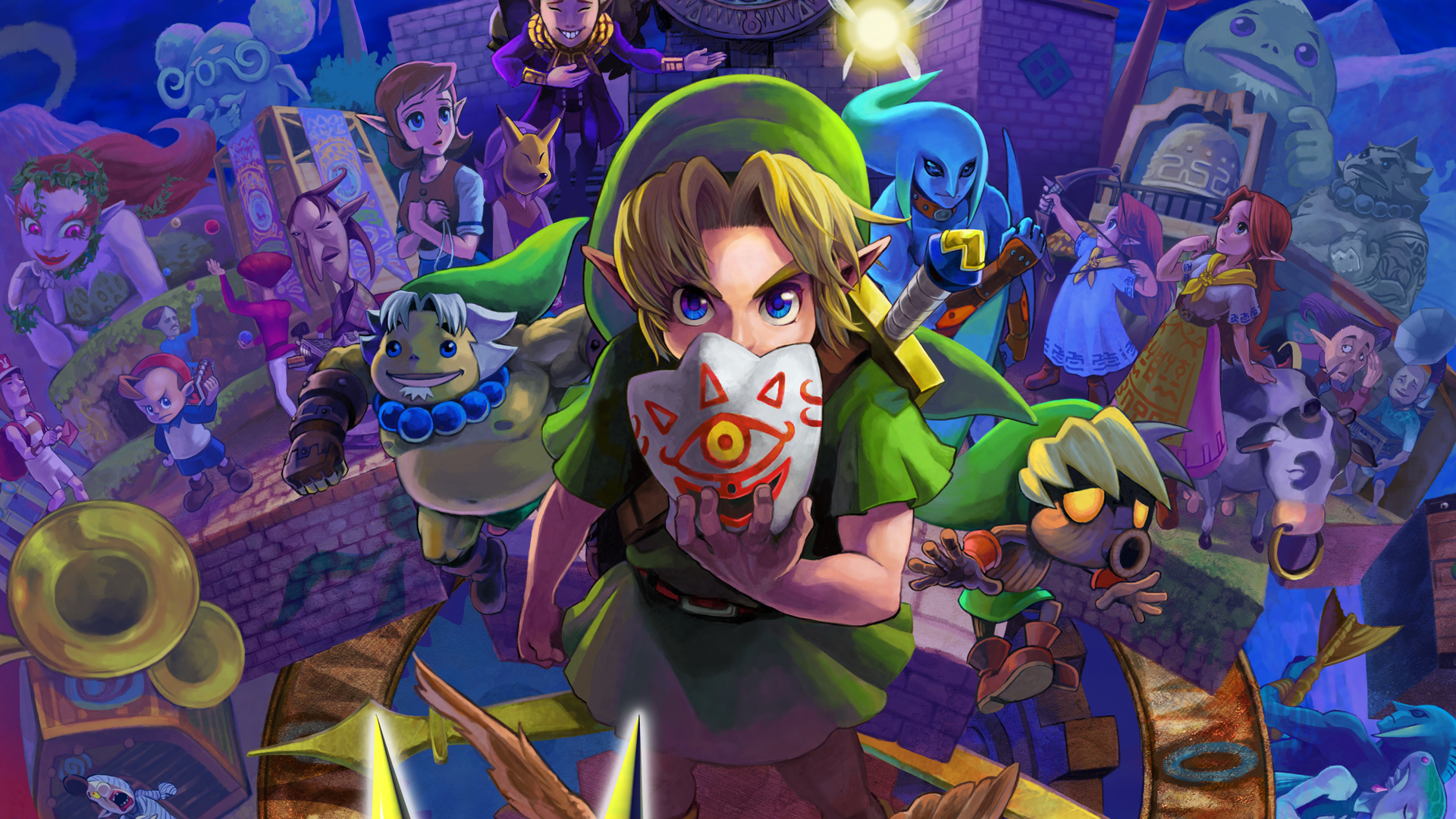
The Legend of Zelda: Majora’s Mask, a game that once topped the Best Zelda Ever ranking, remains firmly in the Top Five despite some slippage in recent years.
“Personally, I’m very pleased that my favorite game of all time has maintained its placement in the Top Five,” articulates Josh Wittmershaus. “Its appeal as the dark horse of Zelda games helps carry it near the top of the rankings every year, and its unique mechanics, themes, story, and imagery has created a cult following, even as it stands under the shadow of its predecessor, Ocarina of Time. The game borrows what it needs to borrow, then does its own thing, utilizing the dual mechanic of timed gameplay and masks that change your relationship with your environment.”
The many eccentricities of Majora’s Mask — such as its time-loop structure, dark tone, and emphasis on side quests — certainly help it stick out among the more “traditional” adventures that populate the ranking’s Top Five. And those eccentricities are what most resonate with the game’s admirers.
“Majora’s Mask,” in Heather Beard’s opinion, “has one of the most unique Zelda mechanics in asking players to manipulate time in order to complete the game, and I love how that affects the entire story. My first time playing, I found the time mechanic to be extremely difficult and to be a little bit of a turn off; but once I figured it out the challenge, it became so much more enticing.
“Majora’s Mask keeps you on your toes, and that’s something that I love about it.”
The uniqueness of Majora’s Mask is further emphasized by John Piland: “For only having four dungeons, it feels like one of the most content-packed games in the series. In every corner of the game, the vibes are there, and they’re all unique. No single playthrough is the same, and that makes the game beautiful. Much of the story takes place in the quests the player accepts, helping separate this title from others with dense main quests.”
“People seek games for different reasons,” explains Josh. “If, however, you are seeking a game that forces an experience of emotional strain and catharsis, then Majora’s Mask is probably already one of your favorites as well.
“Majora’s Mask is a special game. Whether you enjoy it or not, that’s hard to deny.”
4. The Wind Waker
Highest Rank: 1 | Lowest Rank: 14 | Last Year’s Rank: 6 | Avg Points per Author Played: 15.433 | First-place finishes: 3
0/30 staffers had not completed the game and did not rank it.

After a little bit of a dip last year, The Wind Waker once again enters the Top Five! For a game that saw its fair share of controversy in the early 2000s, The Wind Waker has proven itself a crowd-pleaser in recent years, with players now embracing many of the elements that were once lightning rods for fan rage.
“Over 22 years since that original unveiling at Space World 2001 left every fan taken aback,” narrates Kristen Rosario, “The Wind Waker is now looked on with praise. The amazing cel-shaded design of the world compels players to sail around for ages looking for the next mystery island. This game’s version of Link has become the most expressive version of the hero by far. And the story features one of the more tragic versions of Ganondorf yet; you can’t help but feel his anguish.
“Not bad for a game where your companion is a talking boat.”
For Michaela El-Ters, The Wind Waker was the first Zelda game she played from start to finish: “It’s the game that made me fall in love with the Zelda series for its stories, puzzles, and characters. I loved its art style, humor, and gameplay, and I couldn’t have asked for a better entry point to experience the full package than The Wind Waker.“
“If there’s one thing the game has that stands out among the rest of the series, it’s how fun it feels to control,” points out John Piland. “There’s just something about the way the game plays that feels so fluid, so free — it’s incredibly fun.”
So what’s keeping The Wind Waker from the top of this list? Well, even the game’s fiercest defenders can point to a few flaws. “I know that The Wind Waker isn’t perfect,” acknowledges Kristen. “The Triforce Shard fetch quest can get tedious after a while, the Nintendo Gallery side quest doesn’t provide a prize worth all the picture-taking, and the Ganondorf boss fight, while aesthetically pleasing, is nothing to write home about.”
Like Skyward Sword, The Wind Waker has greatly benefited from its HD re-release. The graphical overhaul, inclusion of the Swift Sail, and tweaks to the Triforce Shared questline were more than to rehabilitate the game’s reputation and endear a whole new generation of fans. As John puts it: “The HD remake was so much better, looked amazing, and fixed the slow boat issue.”
“The Wind Waker, 20 years later, is an incredibly polished game,” affirms Michaela. “The fighting and parrying mechanics remain my favorite in the franchise. The story’s surprisingly dark turns are compelling, and its sympathetic portrayal of Ganondorf remains one of the best. The Wind Waker is near and dear to my heart. My favorite Zelda games tend to rotate often, but The Wind Waker always remains at the top.”
3. Breath of the Wild
Highest Rank: 1 | Lowest Rank: 13 | Last Year’s Rank: 2 | Avg Points per Author Played: 17.103 | First-place finishes: 2
1/30 staffers had not completed the game and did not rank it.
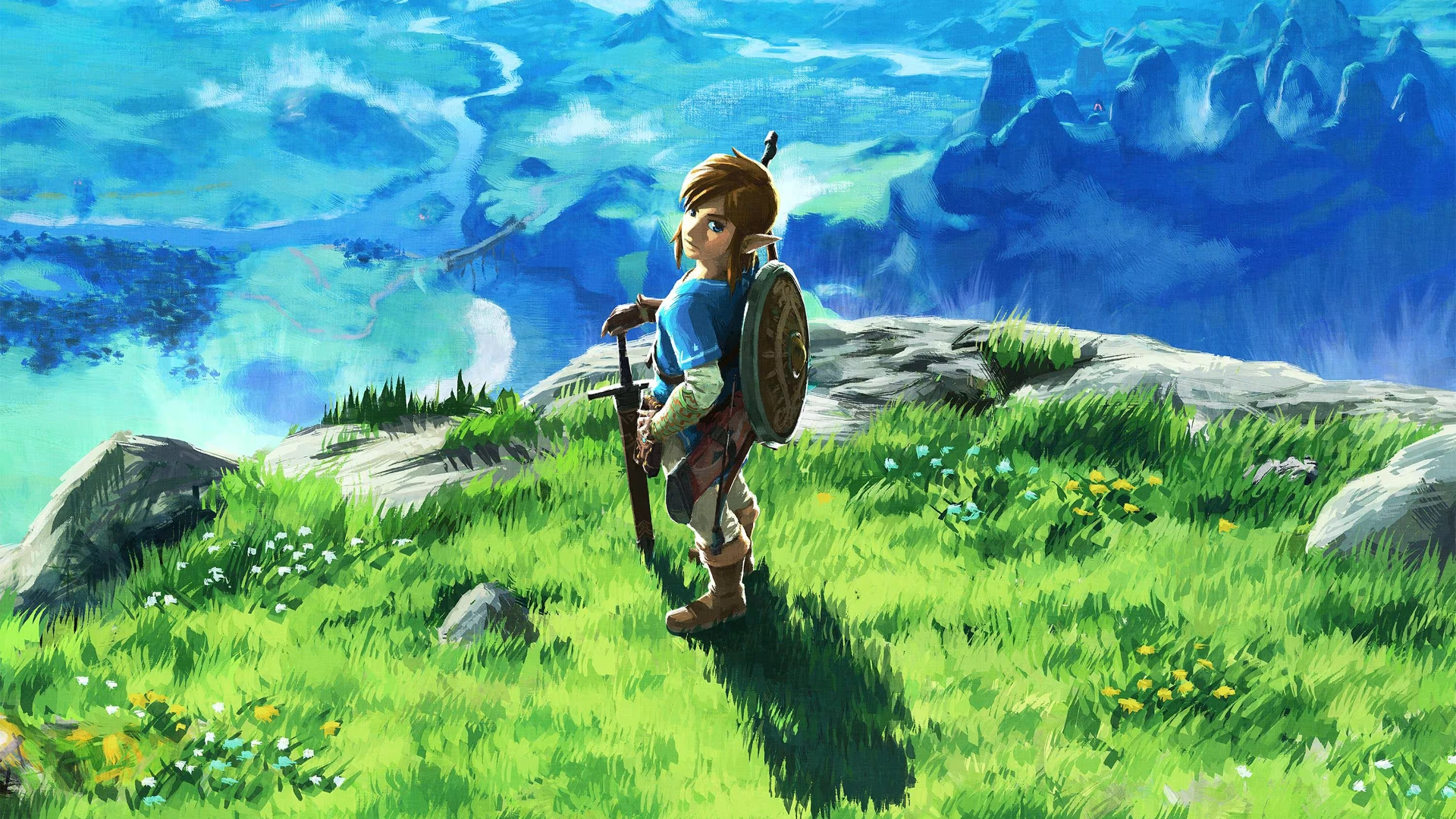
Until a certain sequel hit store shelves earlier this year, the mighty Breath of the Wild seemed poised to one day top this list. It has maintained its second-place spot and has been steadily closing the gap for the past four years, after all. But here we stand today, with the first Zelda game on Switch pushed down to third by its own successor.
Breath of the Wild ain’t no slouch though! Eight of our staffers placed it above the brand-new sequel, in fact!
Take Alex Weber, for instance: “I’ve said it before, and I’ll say it again. Breath of the Wild is one of the most gorgeous experiences you can ever partake in. You enter a vast, open world with nothing to your name, and with as much context as Link. The amnesia-afflicted protagonist explores Hyrule as you emotionally rebuild your understanding of Link’s past and Hyrule’s past, as you learn of your part in it, learn how you failed, caused these ruins, and left Hyrule to the remnant it is today. You were supposed to be the hero of Hyrule. You feel guilt, but at the same time, Hyrule was doomed from the start because it placed such pressure on two teenagers and the dormant legends that made them no more than weapons.
“The narrative plays the past and present more porously than two sides of the same coin; and with stellar gameplay and infectiously stunning environments, Breath of the Wild‘s unity and cohesion will always have it sitting atop Tears of the Kingdom in my list.”
John Furby, proclaiming Breath of the Wild his personal best Zelda ever, goes even further: “It’s the most fully realized adventure, building on decades of past games, Zelda and not-Zelda, to create, in my opinion of course, the perfect video game experience. Tears of the Kingdom only loses the top spot on my list because it lacks that initial wow factor I felt during my first playthrough of Breath of the Wild. I felt like I had been there, done that…”
Despite its acclaim, however, Breath of the Wild remains controversial, for both what it introduced to the Zelda series and what it took away.
“Breath of the Wild has its flaws,” admits Chakell Herbert, “like having to put a story together in an open world, not having a major variety of enemies, and the persnickety weapon durability… The Master Sword can ‘run out of energy,’ the Shrines can get a little tedious, and I longed for the iconic Hookshot during my first playthrough.”
Alexis Anderson, discussing the game’s “polarizing” status, shares: “Breath of the Wild tore several of the things I loved the most about the franchise away from me: a compelling plot, interesting characters, memorable music, and challenging temples. And in excluding so much of what made Zelda special to me, it received endless praise from both diehard fans and newcomers alike.”
Breath of the Wild leaves a complicated legacy, it seems. But one thing is certain: in the eyes of many fans, it’s more than the sum of its parts.
“But despite the flaws, it is a masterpiece,” Chakell continues. “Breath of the Wild brought a new formula to the table that has allowed the series we all love to evolve. I am still entranced by the universe this game created that led to both Age of Calamity and Tears of the Kingdom, giving us even more experiences in this massive world.”
Even Alexis found enough to love on a second playthrough: “The freedom that Breath of the Wild offers is beautiful in its own way, and I am proud of the developers for being brave enough to innovate — maybe that is what makes Zelda special. Since I no longer have to fear that this title irreparably broke the Zelda series (given that Tears of the Kingdom truly aimed to find some balance between the old and the new), I can better embrace Breath of the Wild.”
“I’ve been on this journey a long time since I first played The Legend of Zelda in 1989,” shares John. “So seeing a new Hyrule for the first time is always an emotional experience for me. Stepping out of the Resurrection Shrine and catching a glimpse of the vast wilds of Hyrule took me right back to those childhood days of discovery in video games.
“This series has been a part of my entire life, and Breath of the Wild felt like the series became an adult right along with me. I only hope it continues to grow in new and better ways, whether that be a third game to conclude the Wilds Saga, or a brand new direction to take the series further in the future.”
2. Tears of the Kingdom
Highest Rank: 1 | Lowest Rank: 10| Last Year’s Rank: N/A | Avg Points per Author Played: 17.733 | First-place finishes: 8
0/30 staffers had not completed the game and did not rank it.
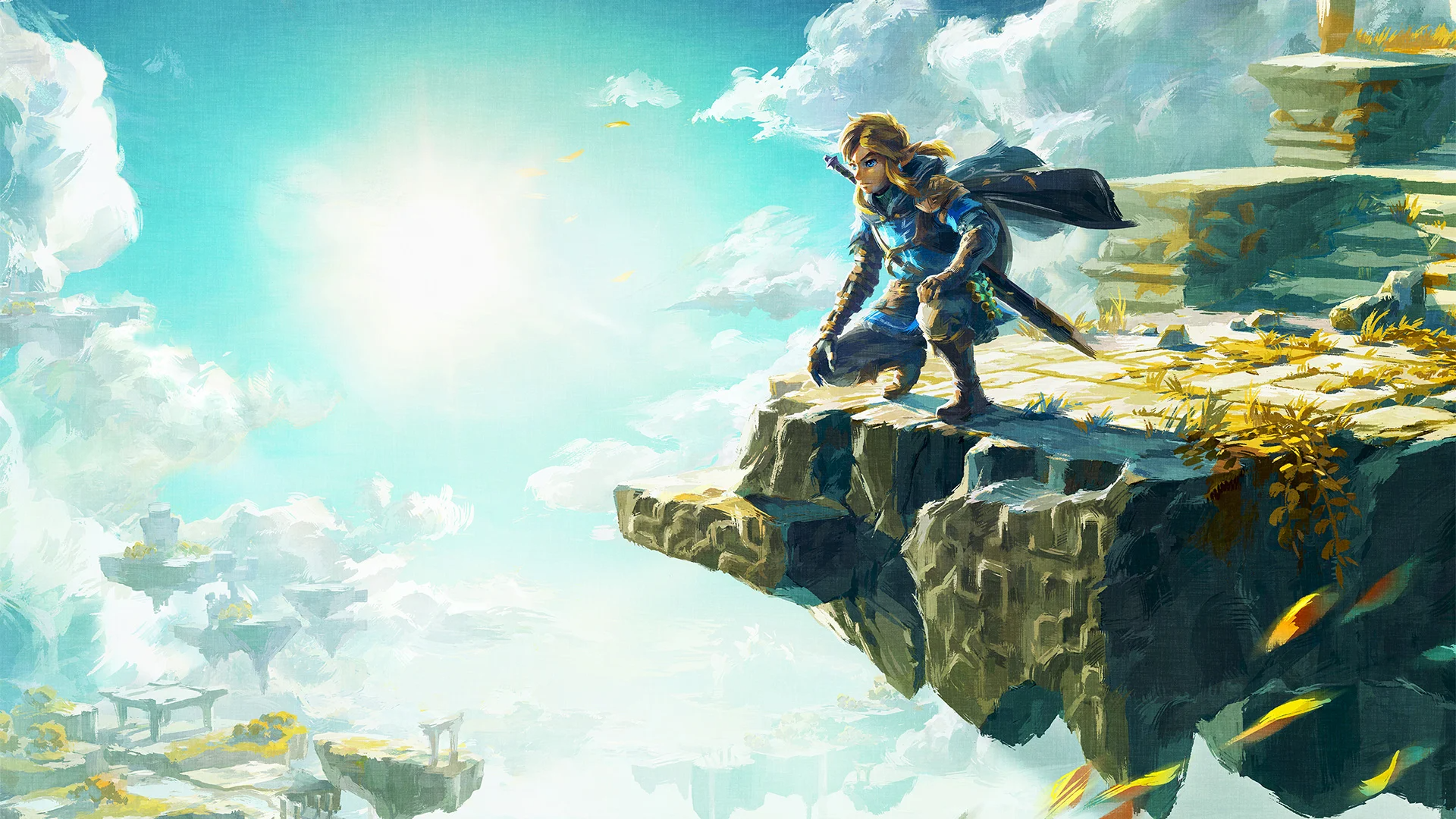
And so, with the greatest debut showing in Best Zelda Ever history, The Legend of Zelda: Tears of the Kingdom officially beats out its predecessor and takes second place! Topping just as many individual lists as our number-one game, this brand-new Zelda adventure certainly shows the potential to take the BZE crown one day. Will the enthusiasm last? Is this all just recency bias? Only time will tell!
Judy Calder is one of the people who ranked Tears of the Kingdom at Number One this year: “The game seems to do almost everything right. It boasts the biggest world we’ve seen in the series so far, with innovative gameplay technology, and captivating cinematic content. The game’s story – continuity issues notwithstanding – was really enjoyable, making up for the sins of its immediate predecessor (which just didn’t grip me due to issues connecting with certain characters).
“I’d say that Tears of the Kingdom’s world size is so impressive especially due to the means the player can use to traverse it. Whether you’re flying a hoverbike through the Depths or gliding down from Sky Islands, the method of adventure can be so vast, and it’s entirely up to the player as to how they wish to experience it. Watching NPCs like Sonia, Rauru, and Ganondorf during cutscenes felt really special, but nothing beats the heart-wrenching realization of Zelda’s own actions, especially towards the end of the game.”
“Tears of the Kingdom easily deserves its podium finish above Breath of the Wild,” writes Kora Burton. “When put to the question, I think I’ll always say Breath of the Wild is my favorite Zelda, purely for what it did for me at the time. My relationship with Tears is emotionally complicated; but I think I can wholeheartedly agree with my colleagues who write that, in just about every way, what Breath of the Wild did first, Tears of the Kingdom has done better.
“I mentioned in my comments on Breath of the Wild last year that it was a great game because it was accessible. Tears of the Kingdom, in my opinion, guides players who may have first learned the ropes from its predecessor into a more complicated, content-rich, and challenging arena. When beaten, Tears dishes out a stronger sense of accomplishment, on top of providing a story that at least in some ways addressed the criticism of its predecessor’s weaknesses when it came to characterization and emotional follow-through.”
Even Kat Vadam, who ranked Breath of the Wild higher than its sequel, has praises to share: “I honestly believe Tears of the Kingdom deserves its high-standing amongst the entire catalog of Zelda games. It took the foundation of a widely acclaimed game and built upon it, with new abilities and world map additions that truly added a level of depth lacking in its predecessor. Gameplay-wise, what we wanted in Breath of the Wild, we were gifted in Tears of the Kingdom. This game was a masterful improvement, with a great legacy still unknown.”
So where exactly did Tears of the Kingdom falter according to our staff’s Breath of the Wild champions? “My one hold-up — which is, to me, a major hold-up — is the story, ” says Kat. “There has to be a balance between open-world gameplay and linear storytelling, but it wasn’t seen in Tears of the Kingdom, thanks to the game’s flashback-style cutscenes that can be found in any order. This is a game better served in a specific order. Let us find the first flashback, then be prompted to the next, then the next. We can still explore freely, but the story is presented to us as it is meant to be seen.”
As Kat mentions above, the legacy of Tears of the Kingdom has yet to be written. We’ll just have to wait until next year’s list to see how sentiment changes — for better or worse — with the flow of time.
Until then, let’s consider the sincere words of David Lasby:
“When I think back to my childhood in the 1990s, the moments that made me fall in love with video games were the summer afternoons I spent in front of my television, exploring Hyrule in The Legend of Zelda: A Link to the Past, telling my own story as I replayed the game again and again. There was magic in that Super Nintendo cartridge, power that unlocked not just happiness, but imagination.
“As I try to articulate why The Legend of Zelda: Tears of the Kingdom is my 2023 game of the year and my vote for the best Zelda ever, I’m taken back to those childhood summers. Somehow, three decades later, Nintendo has engaged in sorcery once again. Like those early days, I find myself enjoying the journey, taking my time exploring every nook and cranny of the legendary kingdom. But unlike the early 90s, I’m now fully in charge of my story. If I want to defend Hyrule as a master engineer or with the Master Sword, I can do so with full immersion; it’s not just the Hyrule Fantasy anymore, but the Hyrule Science Fair, too. This level of player control leads to near endless replayability. Remember the old ‘no-sword run?’ Tears of the Kingdom allows this in spades… literally. I put 700+ hours into Breath of the Wild – when I play Tears of the Kingdom for the last time, I’m sure I’ll have double that. That’s the mark of a great game, in my opinion.”
1. Ocarina of Time
Highest Rank: 1 | Lowest Rank: 13 | Last Year’s Rank: 1 | Avg Points per Author Played: 17.8 | First-place finishes: 8
0/30 staffers had not completed the game and did not rank it.
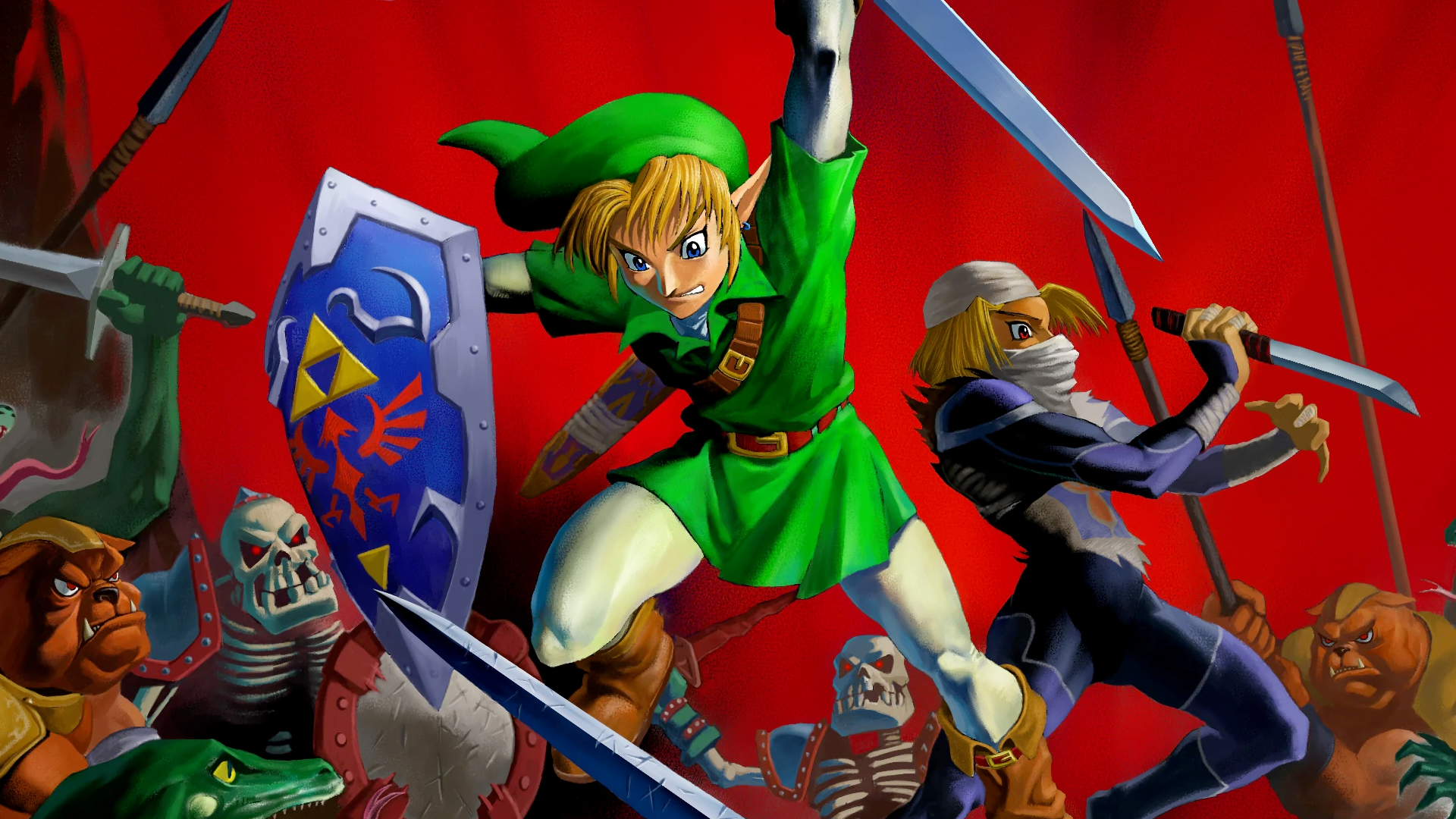
And here we are again! Despite 25 years of evolution in the Zelda series, despite significant demographic shifts in our staff, despite a shiny, new game nipping at its heels, our BEST ZELDA EVER, for the sixth year in a row, is The Legend of Zelda: Ocarina of Time!
This one may have seemed like a forgone conclusion considering Ocarina‘s BZE record, but I cannot stress enough how close this race was. With Ocarina of Time and Tears of the Kingdom separated by A MERE TWO POINTS in the final tally, any single staffer could have altered history forever and crowned a new best Zelda ever. That could still happen in the future, but for now, let’s bask in the glory of Ocarina of Time.
“What is it about Ocarina of Time that has stayed with Zelda fans for the past 25 years?” asks Leslie Jacobson. “It was a giant leap into the world of 3D video games, and for the time, was one of the better forays into that new space. The controls worked smoothly for navigating the 3D environments, especially the improvements in controlling the camera with Z-targeting. This camera control became standard in 3D games afterward, along with context-sensitive buttons. The impact it has had on gaming as a whole, not just on the Zelda series itself, can hardly be understated.
“It’s not just gameplay that has stuck with gamers. It is the story of an evil wizard who betrays a kingdom, of a young princess wanting to save her kingdom by naively plotting with a young boy, and of that same boy who is thrown forward in time to embody the hero and save the day. The characters were all unique in their designs and their impact on the overall story. It’d be difficult to imagine the story without gentle Saria, gregarious Darunia, or even the stoic nursemaid Impa. Zelda was not just a damsel in distress, and, as her alter-ego Sheik, she had agency and impact on Link’s journey through the land of Hyrule. The story became the standard by which many other Zelda titles are measured.”
“Interestingly, it’s a miracle Ocarina of Time was as impactful as it was even in its own era,” points out Charles Xavier. “According to worldwide sales comparisons of the Nintendo 64 and Sony PlayStation from March 31st, 2005, the Nintendo 64 only sold 32.93 million units. In comparison, the PlayStation sold 102.49 million units. This means games on the PlayStation, in theory, should have had more chances to be a groundbreaking generational phenomena. It had Final Fantasy VII, after all, which released a year prior to Ocarina of Time and sold more copies overall. However, people don’t look back on Final Fantasy VII the same way they look back on Ocarina of Time.
“We talk about Ocarina of Time in context of the past because it was by far the most influential game of that timeframe. We talk about it in the context of the present because it remains a paragon of game design. It strikes a balance of being a linear game, yet still feeling open. It delivers a quantity of dungeons with no sacrifice of quality. It has a soundtrack that is memorable. It has a story that is paced well, and told in a simple yet compelling way.”
“The truth is, there’s a reason this game is always ranked so high,” says Connor Butler, one of our youngest staffers. “Ocarina of Time is a tried-and-true work of art.
“I have been able to accept that this game, as amazing as it was technologically at the time, still has flaws. Sometimes the gameplay feels a little clunky, and that Water Temple is a piece of work… but overall, the game holds up beautifully. One of my favorite things about replaying this game is that even after all these years, the game still feels like a genuine fairy tale. The story feels ancient, as if it’s been passed down for years and years.”
“Ocarina of Time is the Citizen Kane of video games,” declares Rod Lloyd. “At a time when the medium was quickly maturing into what we know today, this revolutionary title innovated in nearly every aspect imaginable, from navigation in a 3D space, to expansive world design, to narrative presentation, to quality sound. It was a technical marvel at the time, proof of what video games as an art form was capable of, and it at the same time provided an adventure so captivating and a story so fulfilling that it has remained in the zeitgeist for over 25 years when other classics of its time have become overshadowed by the shiny, new titles that followed.”
And so, there it is! That brings to a close this year’s edition of Best Zelda Ever. Putting together this list was exhaustive, but immensely rewarding. As new games come out, new editors come on board, and Zelda continues to evolve, it’ll be interesting to again see where this legendary series takes us, and how that flow of time reflects each game’s legacy. From everyone at Zelda Dungeon, thank you for reading!
All quotes obtained firsthand. Make sure to let us know what your best Zelda ever is in the comments below! Make sure to follow the Zelda Dungeon team on X (formerly Twitter) and elsewhere. Contributing to this article were:
Rod Lloyd
Judy Calder
Kat Vadam
Alexandria Weber
David Lasby
Heather Beard
Alexis Anderson
Brandon Schmitz
Michaela El-Ters
Sean Gadus
Charles Xavier
Emi Curtis
Kora Burton
Kristen G. Rosario
Chakell Herbert
Leslie Jacobson
Nick Miller
John Piland
Connor Butler
John Furby
Josh Wittmershaus

Rod Lloyd is the Editor-In-Chief at Zelda Dungeon, overseeing the news and feature content for the site. Rod is considered the veteran of the writing team, having started writing for Zelda Informer in 2014 as a Junior Editor. After ZD and ZI officially merged in 2017, he stepped into the Managing Editor role and has helped steer the ship ever since. He stepped up to lead the writing team as Editor-In-Chief in 2023.
You can reach Rod at: rod.lloyd@zeldadungeon.net



